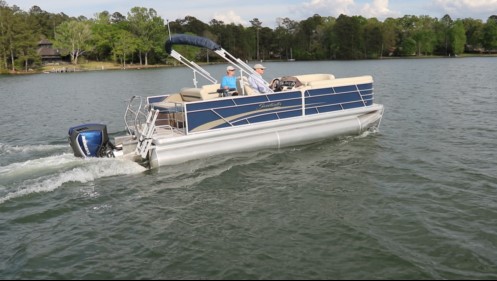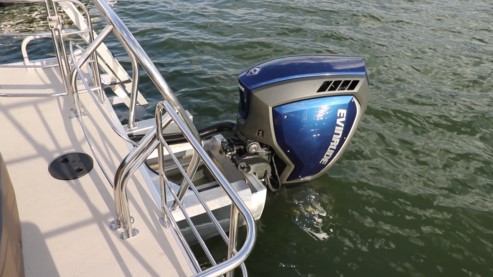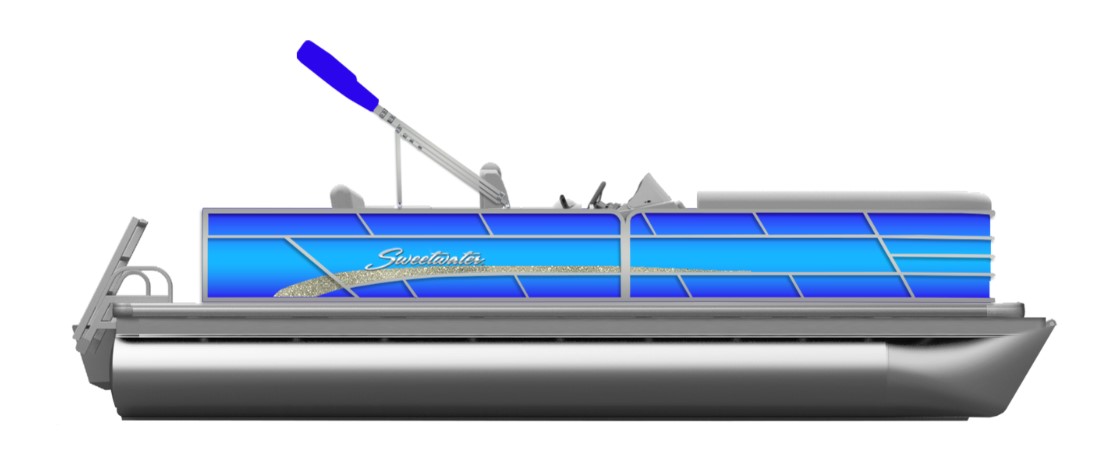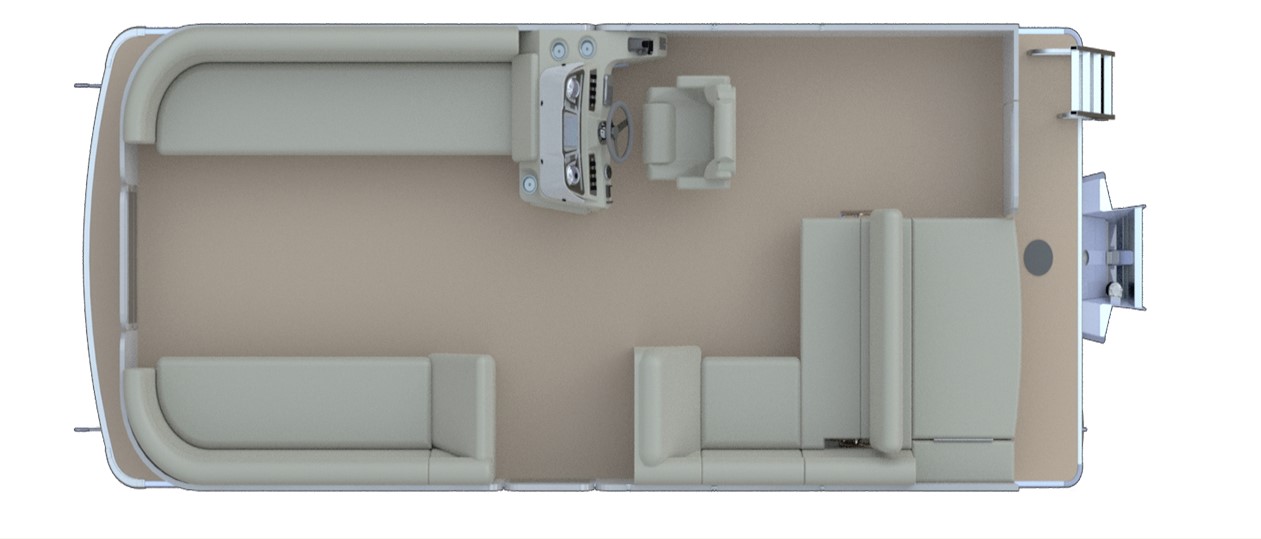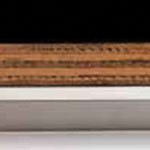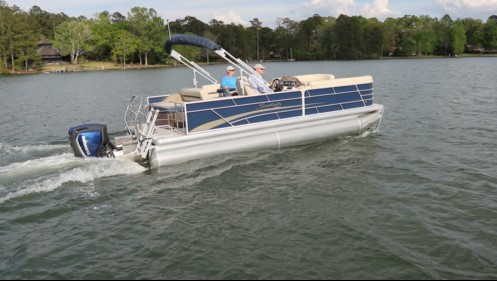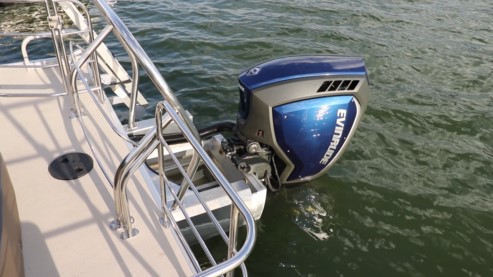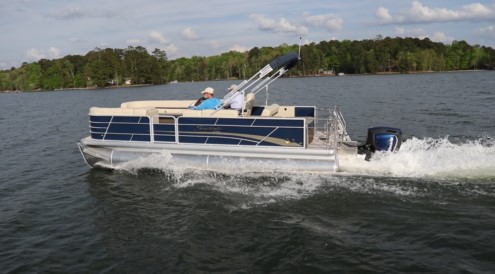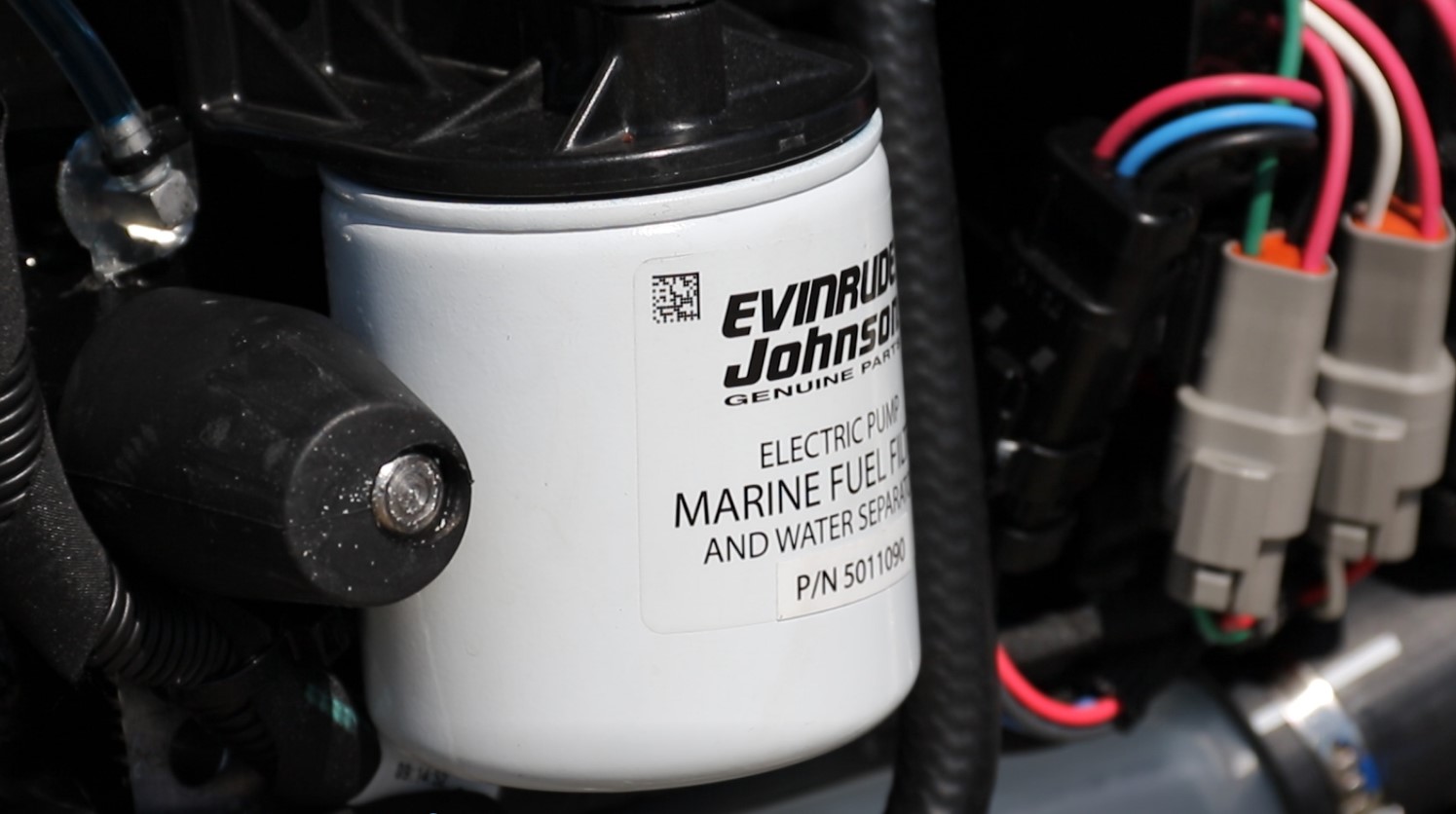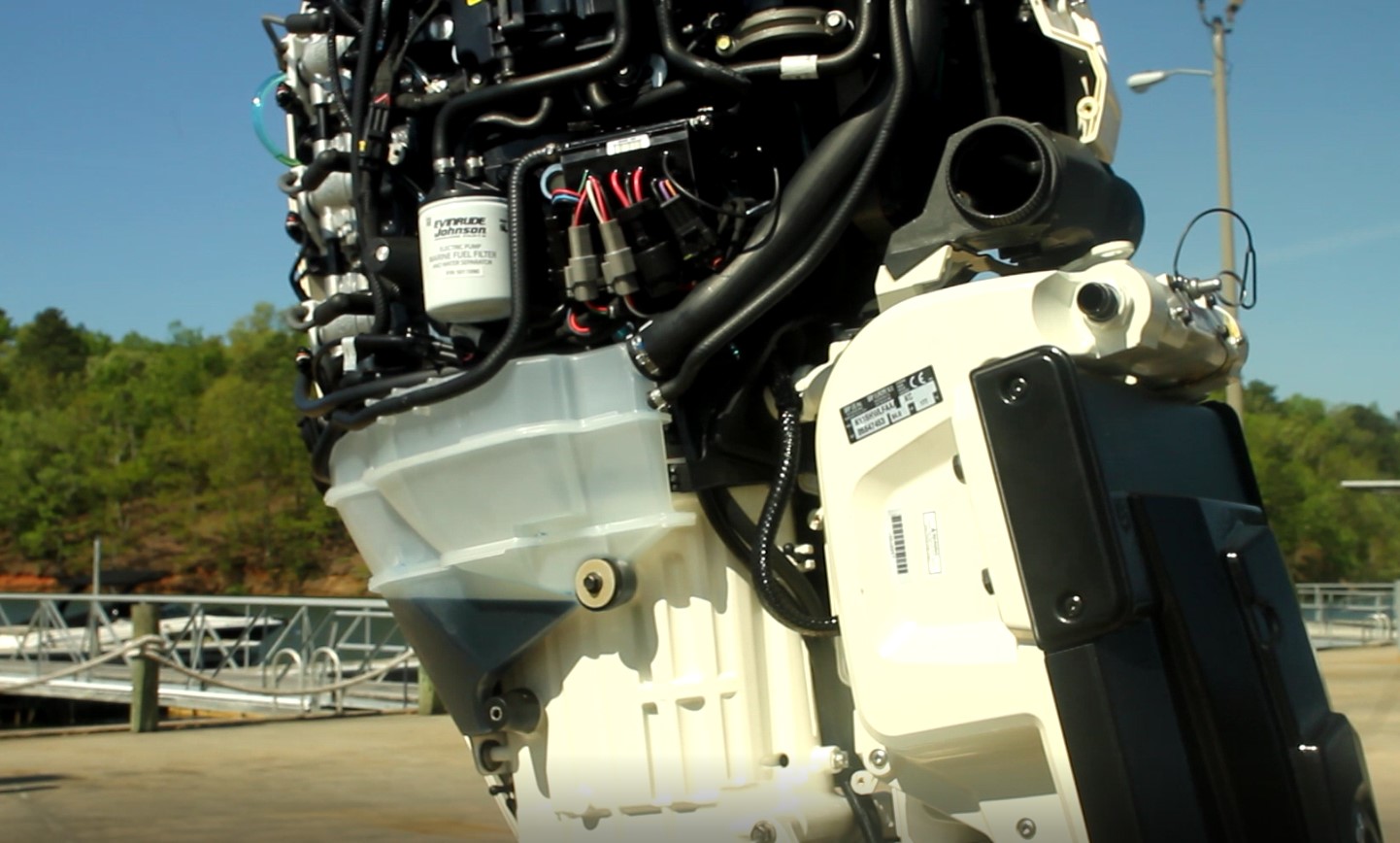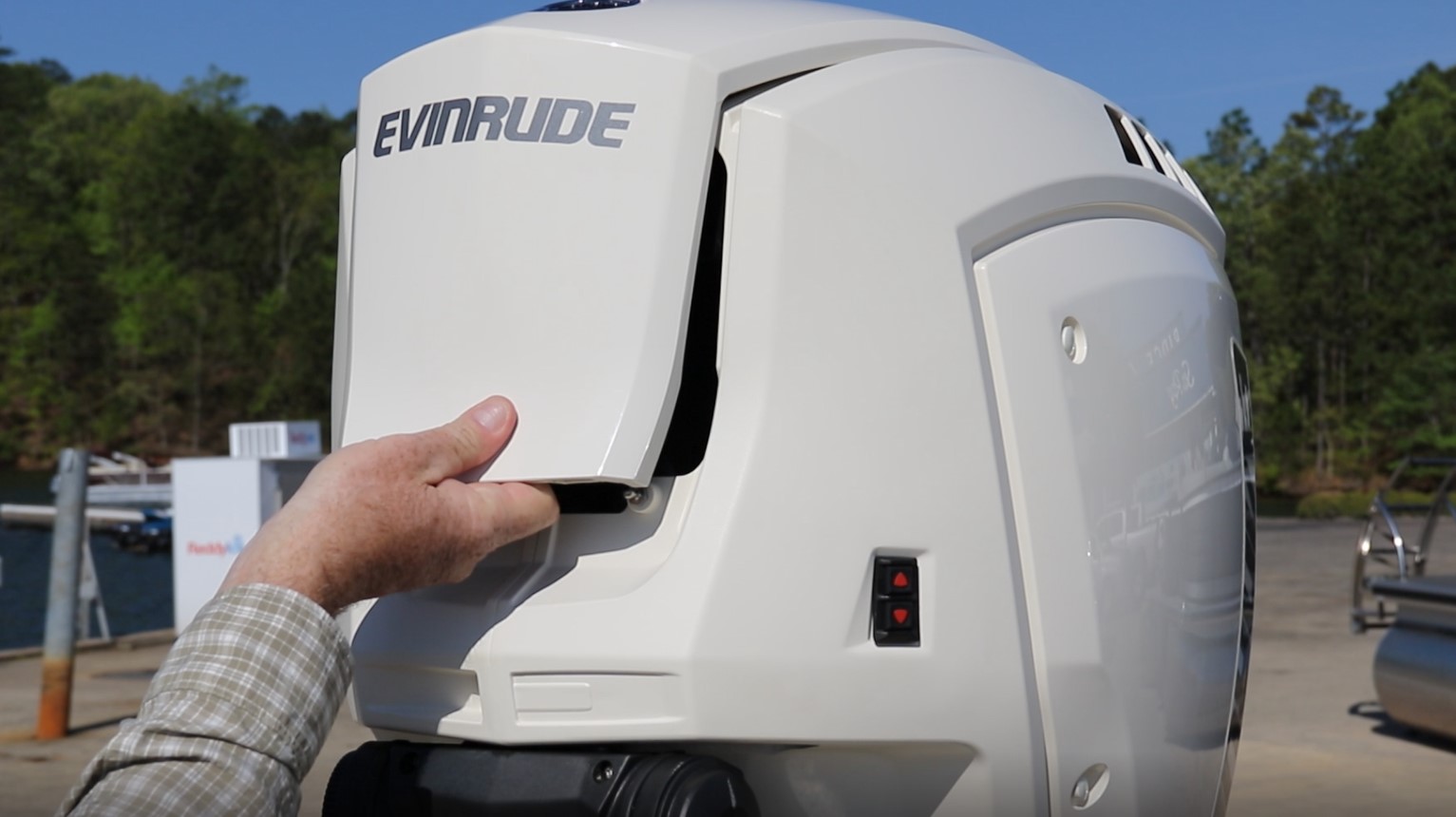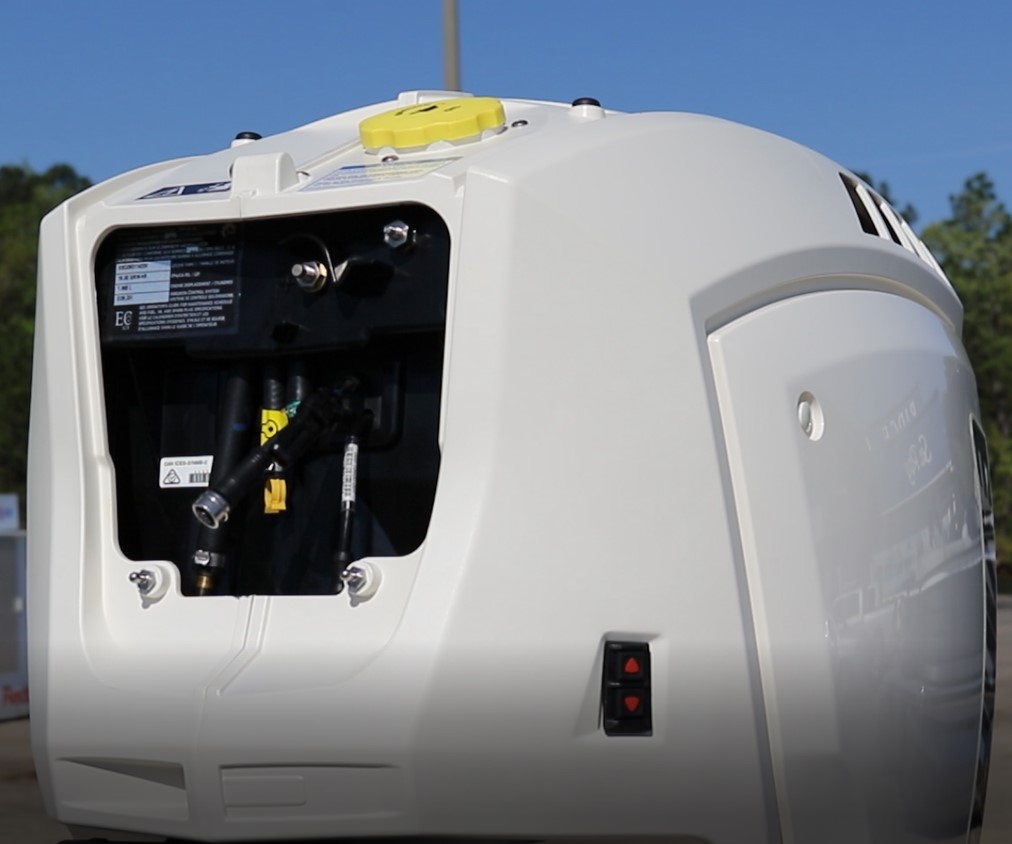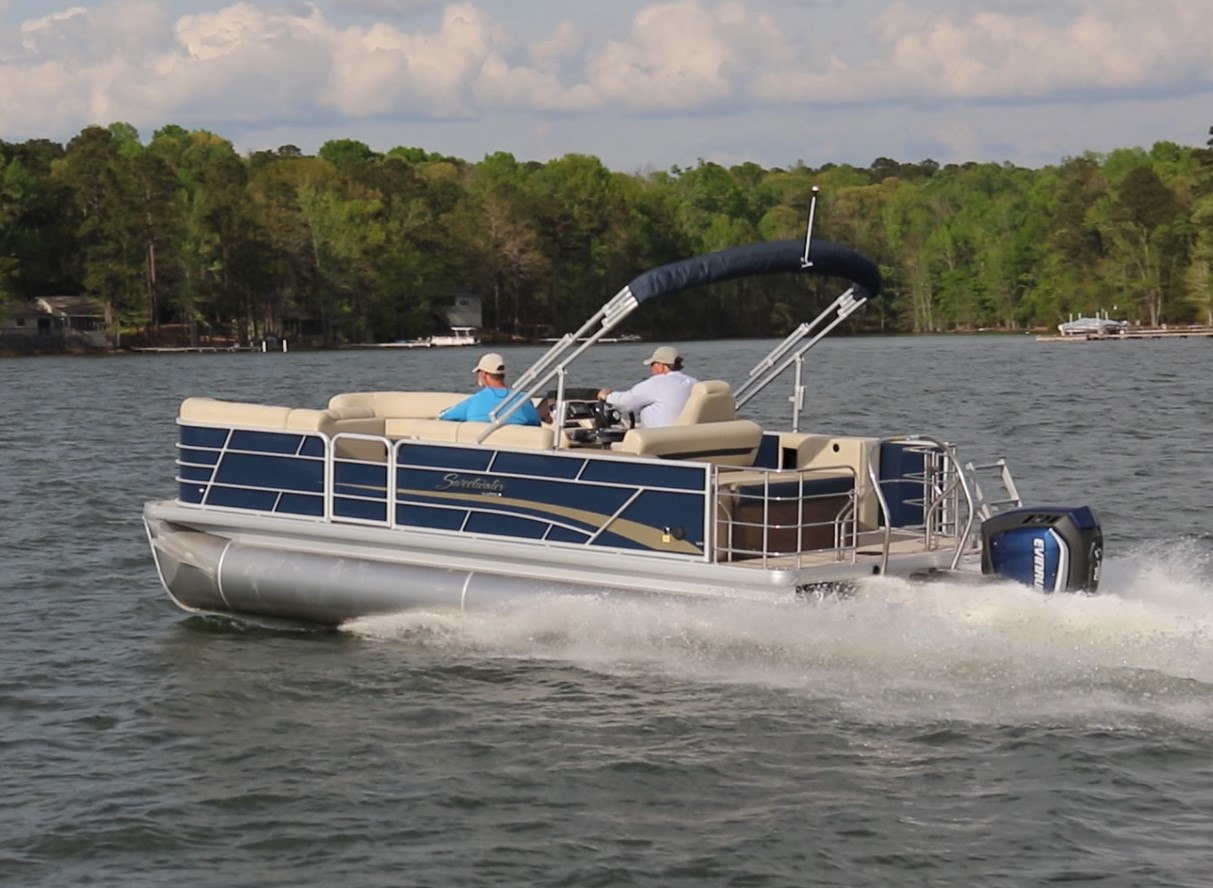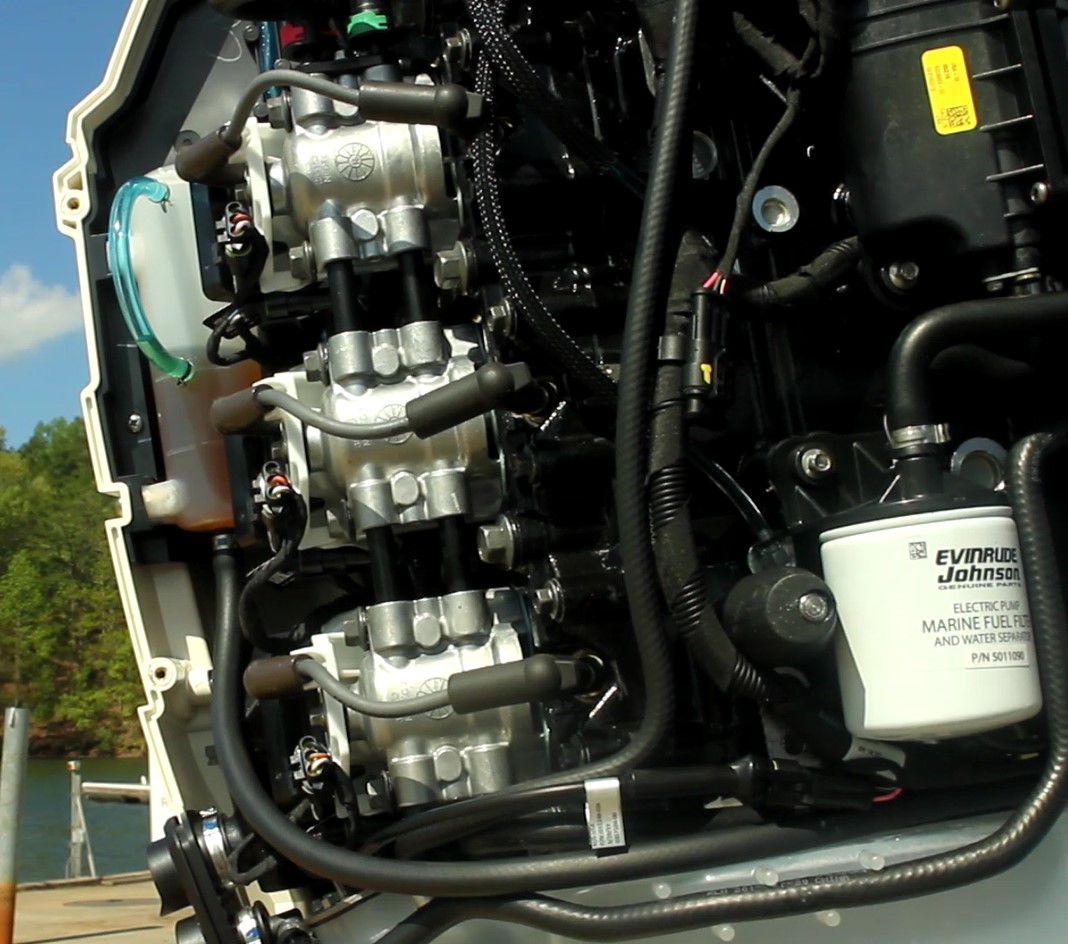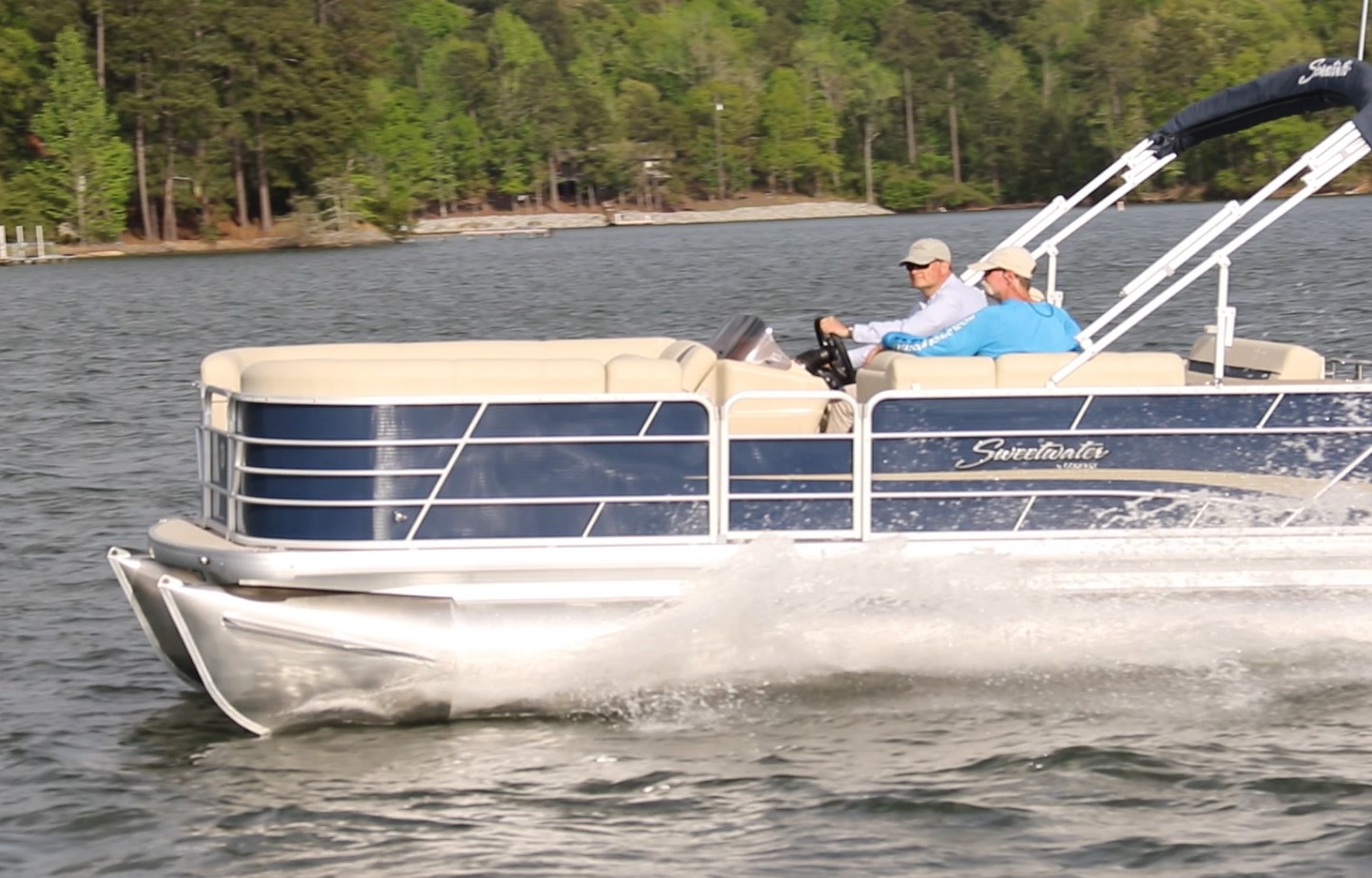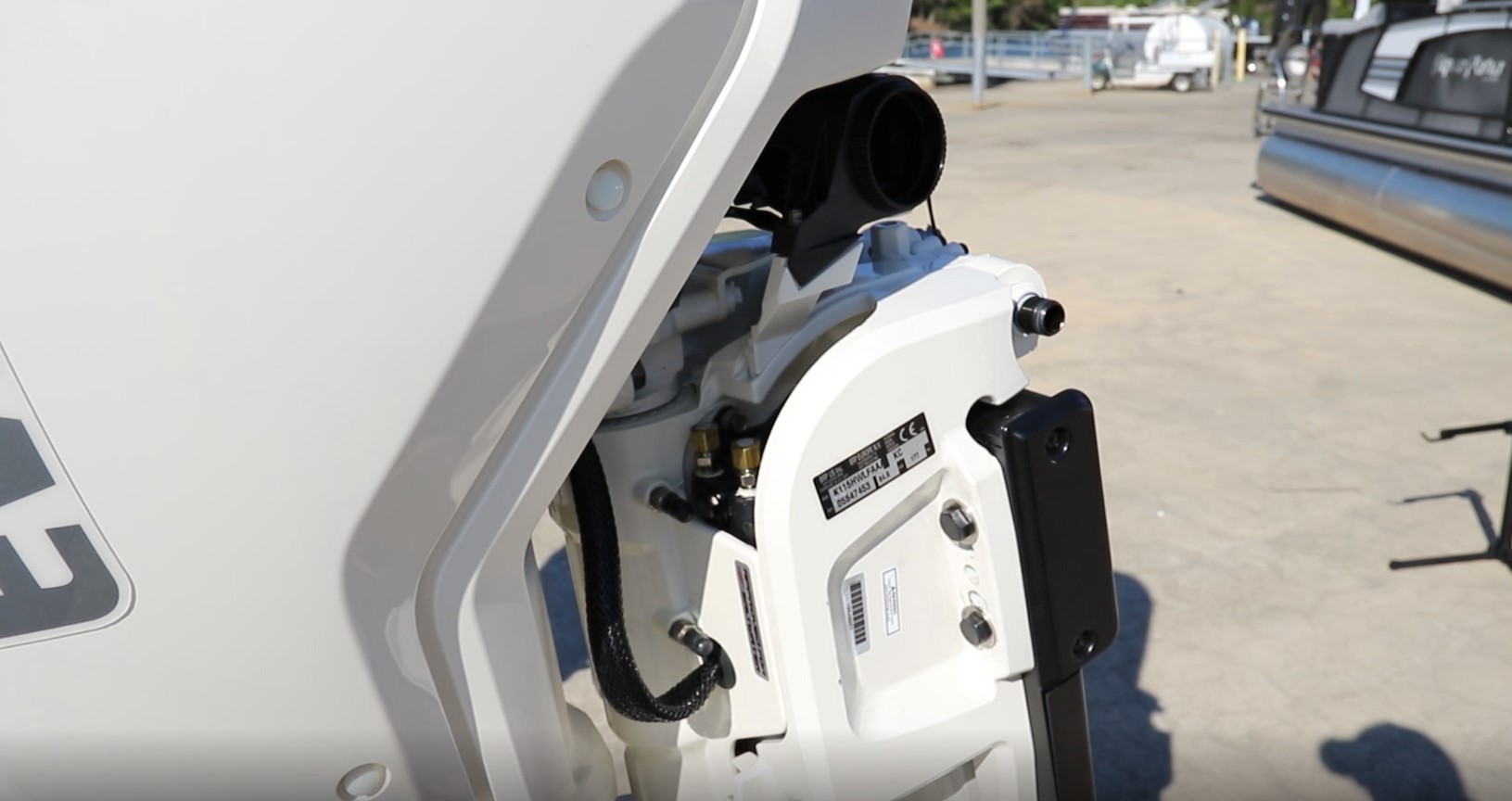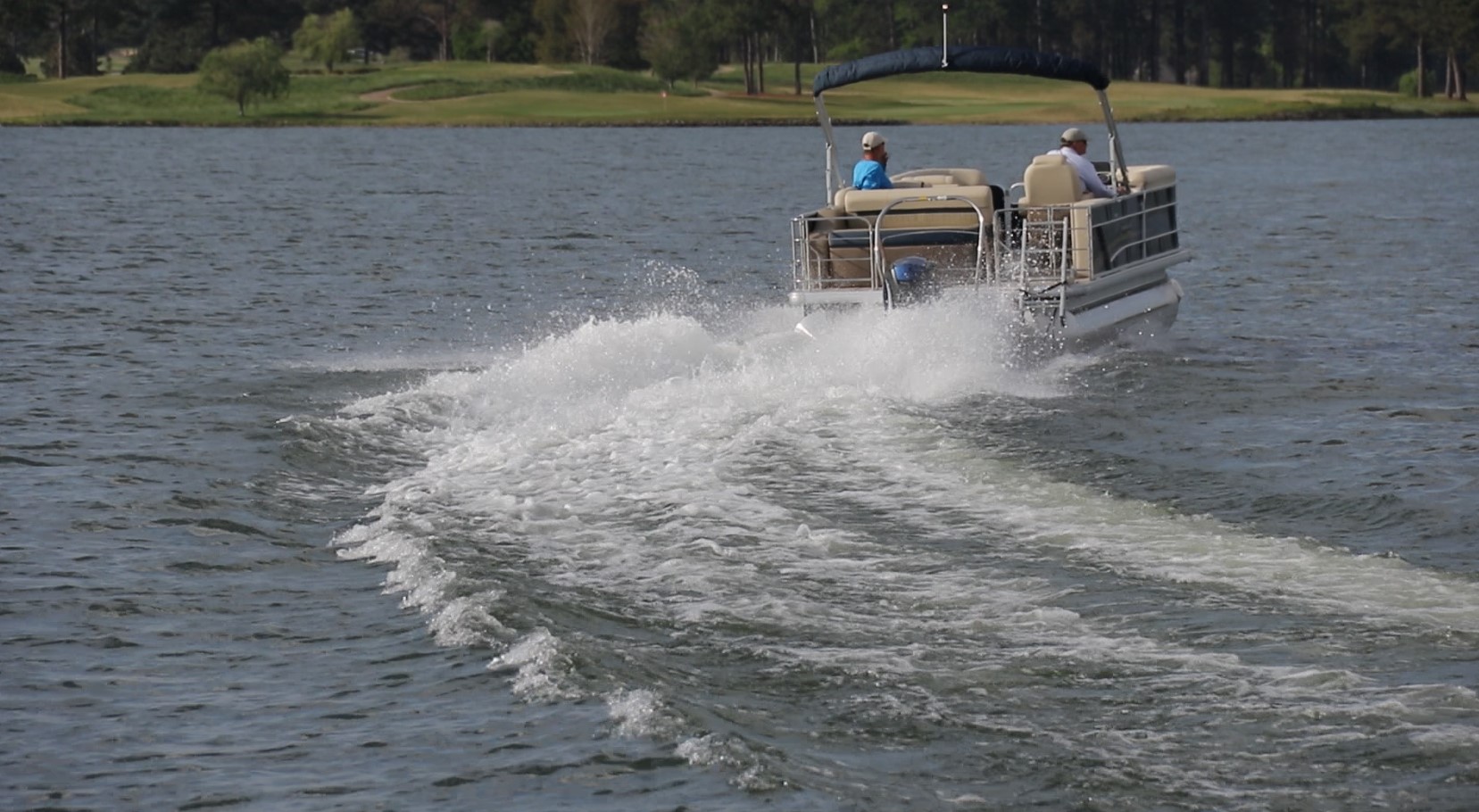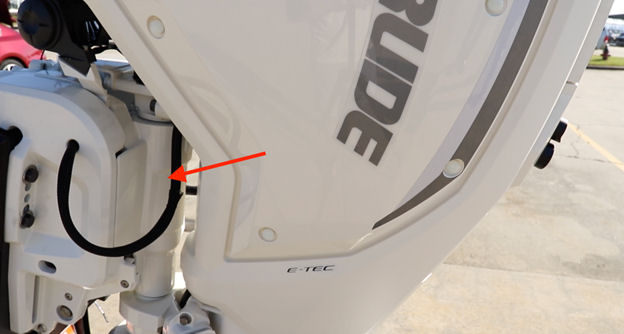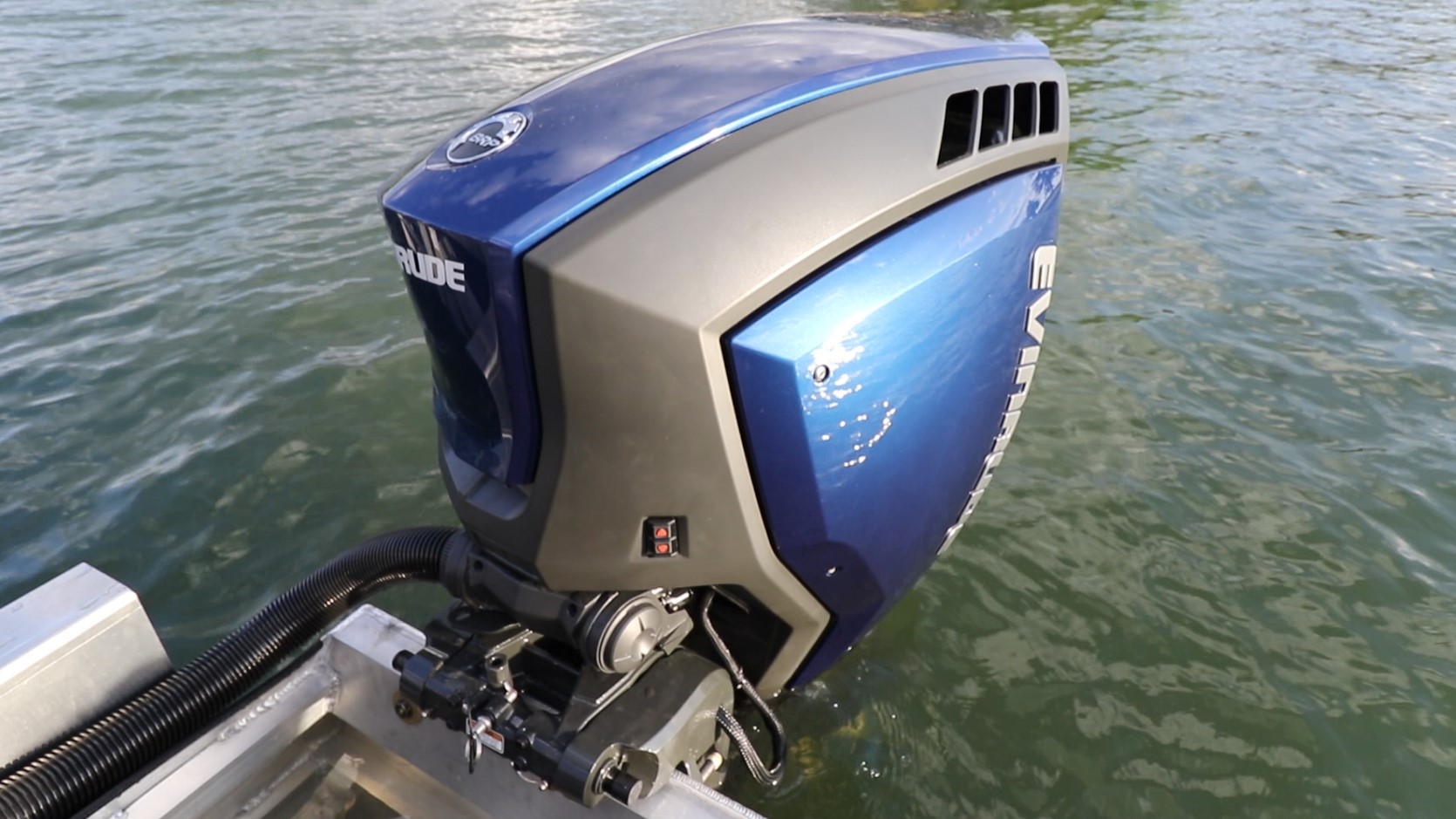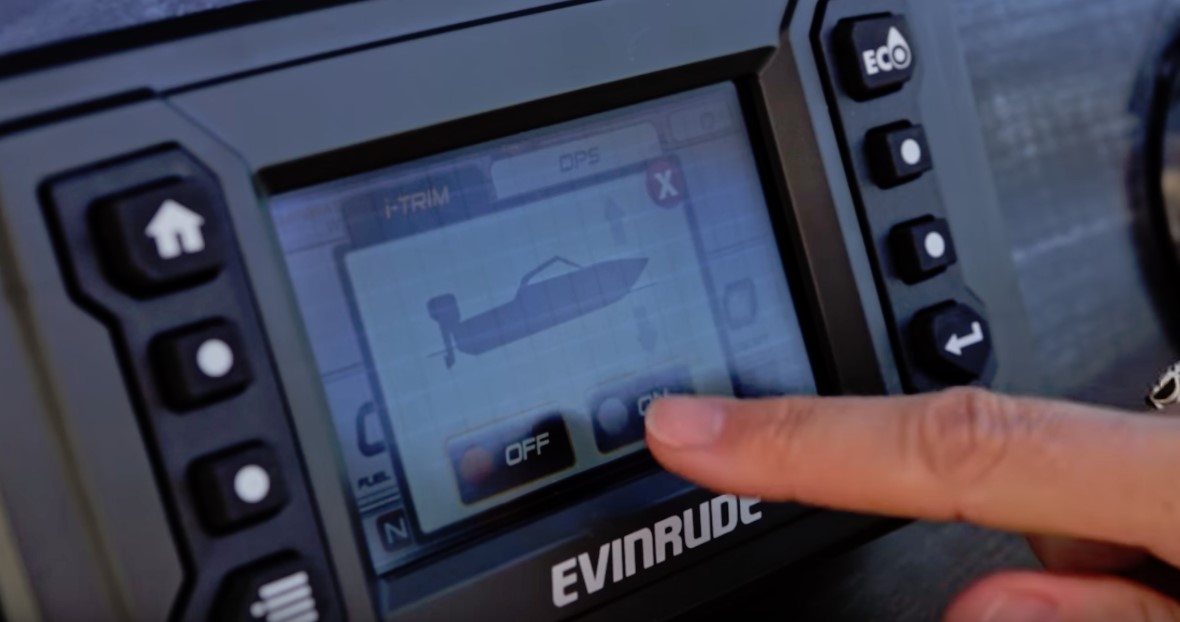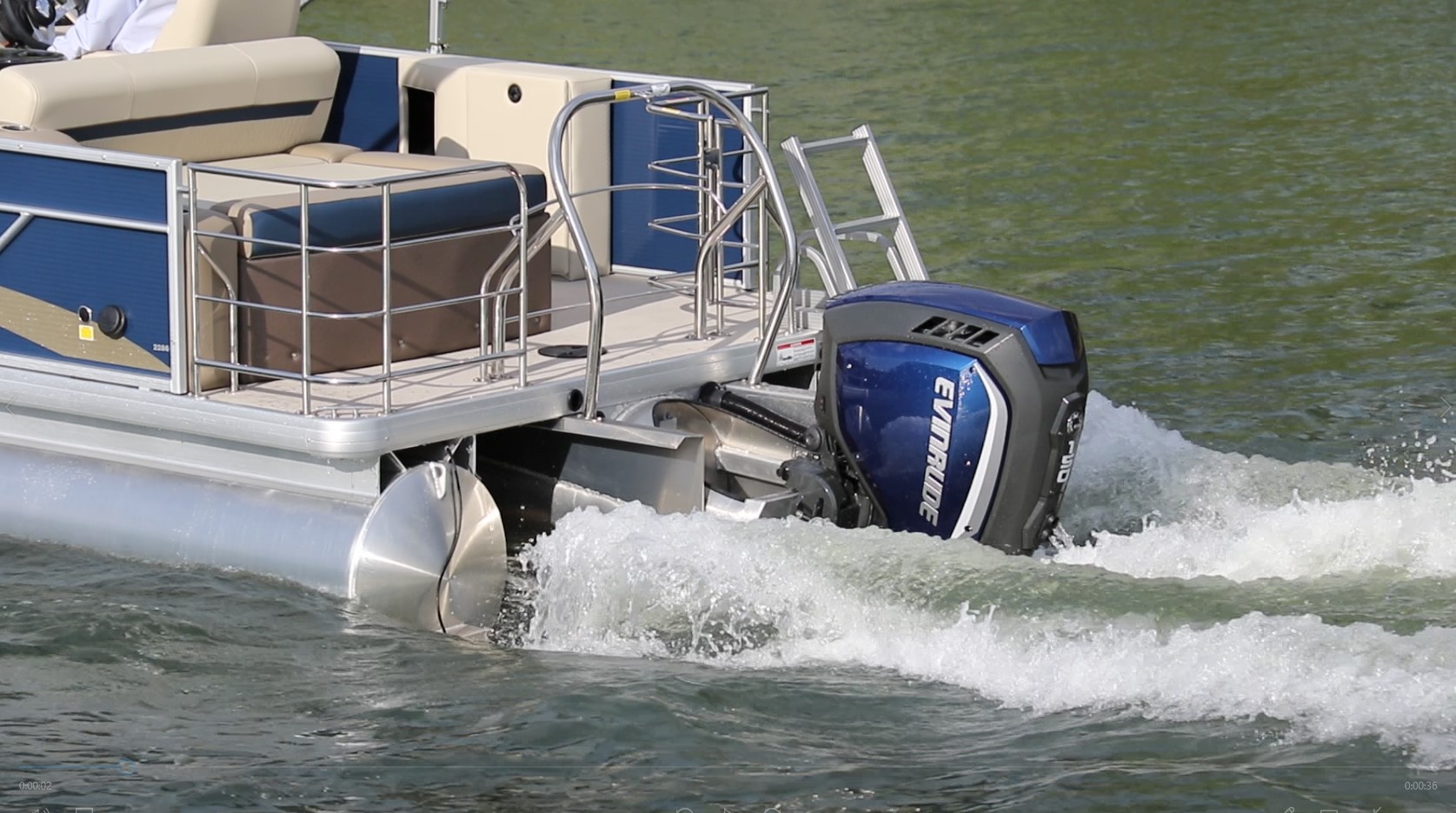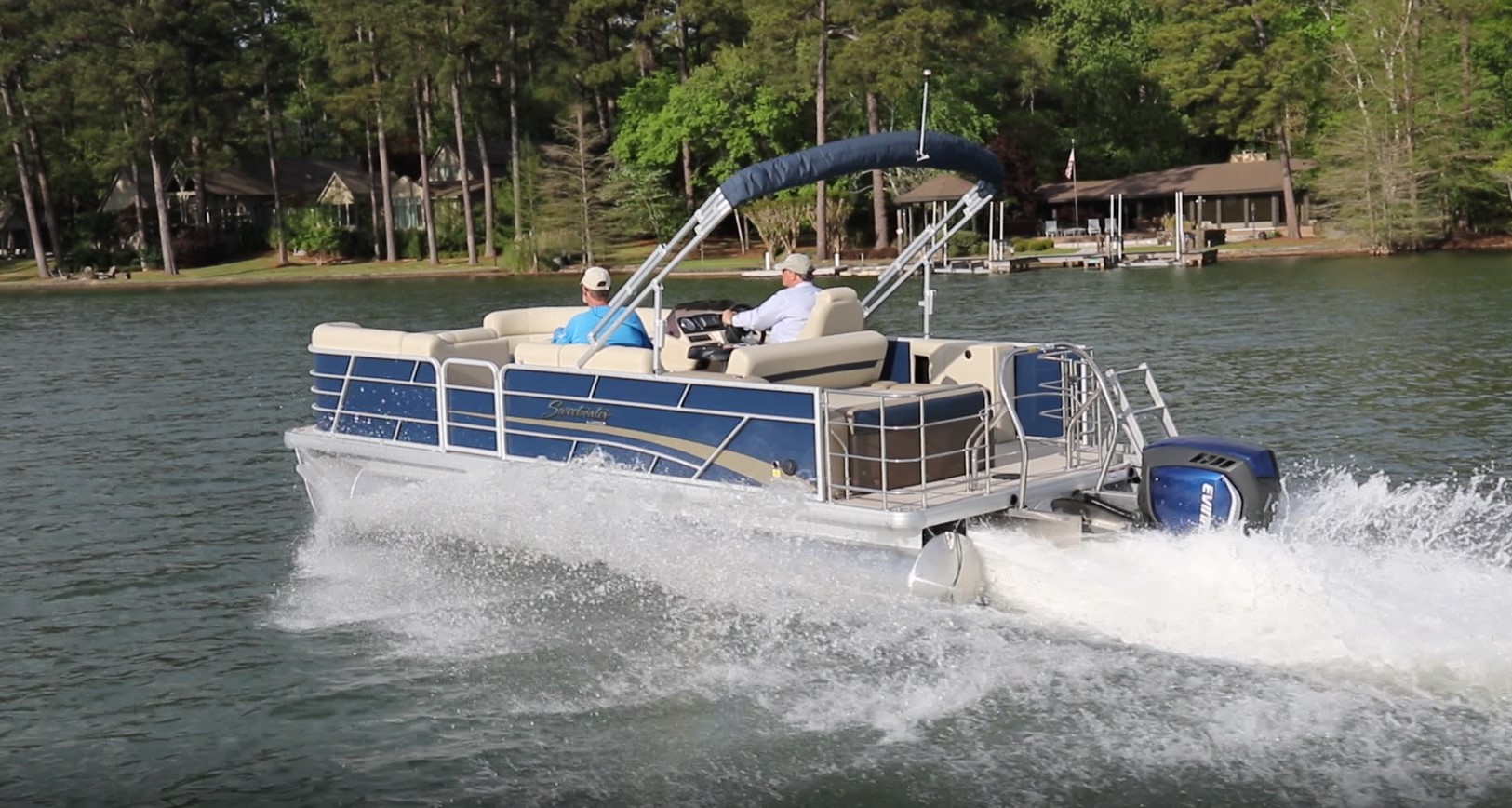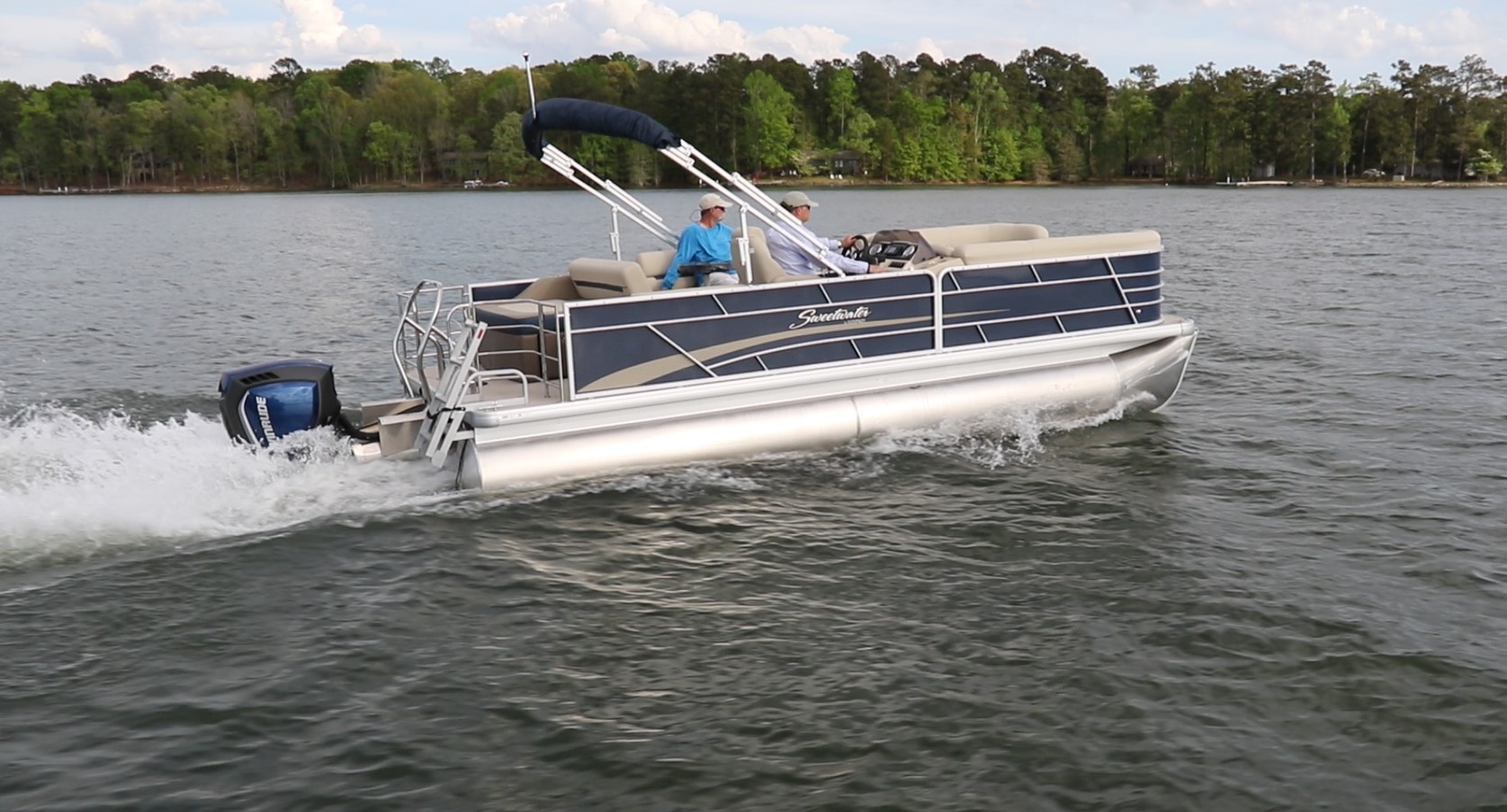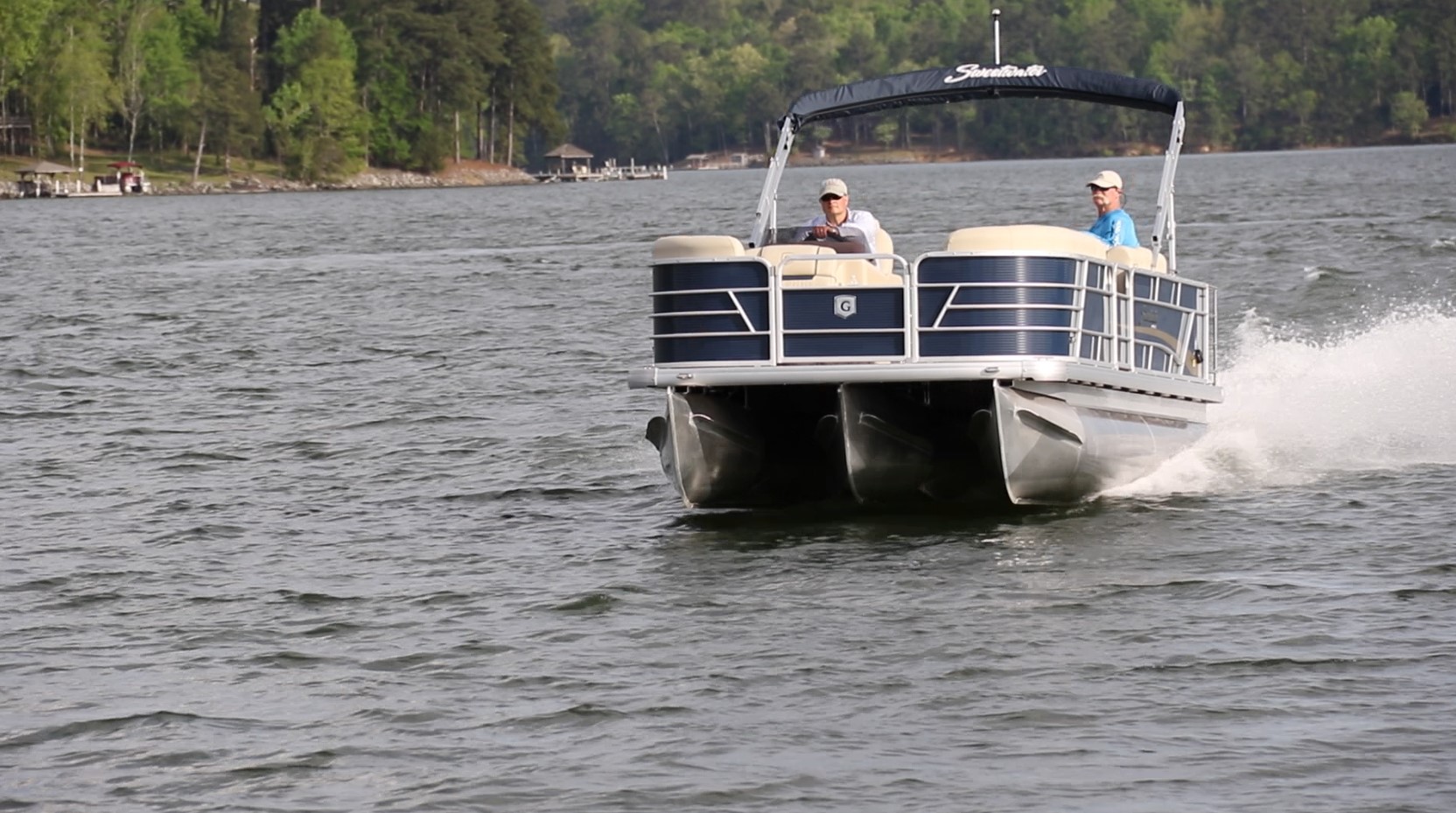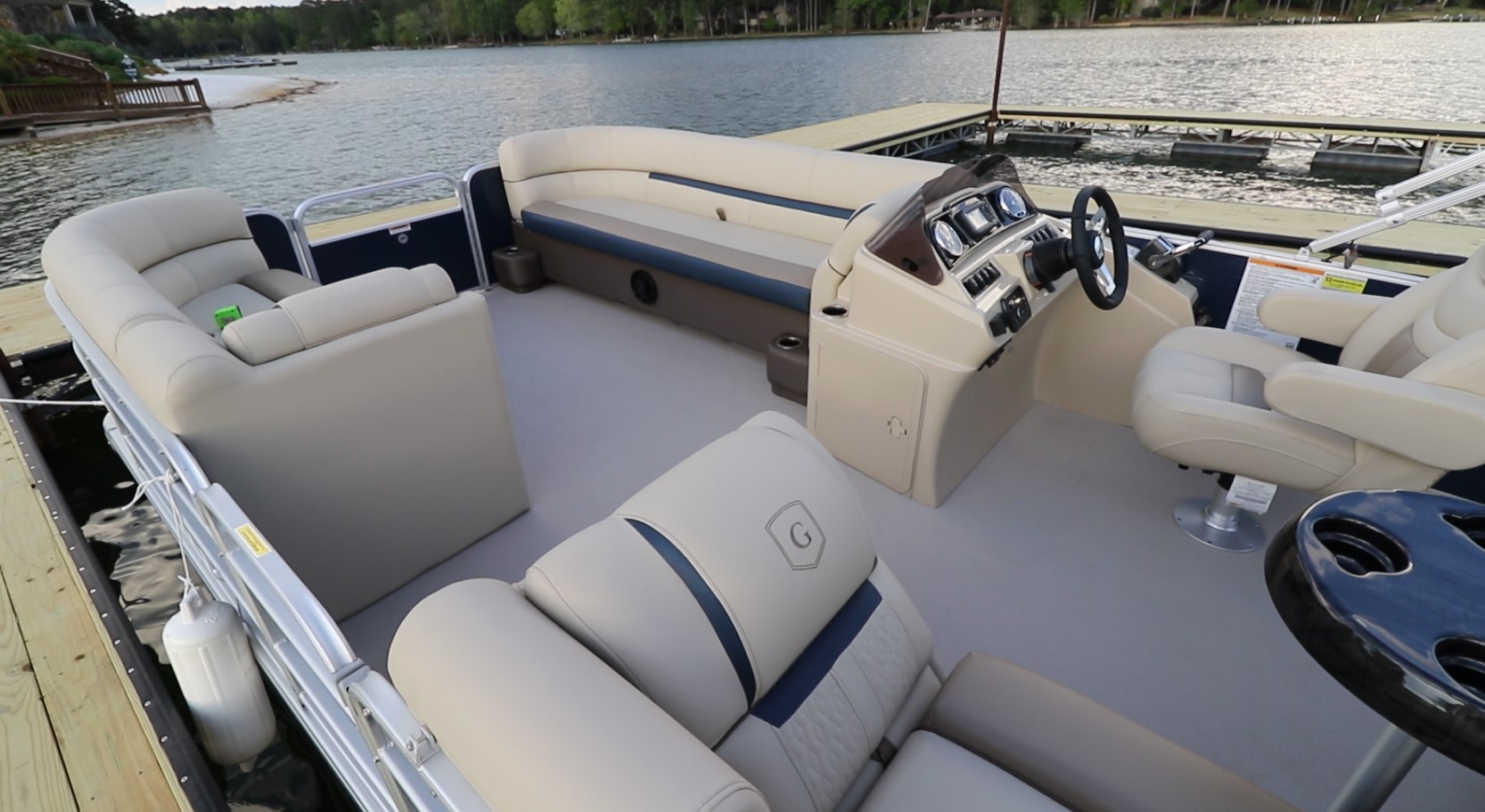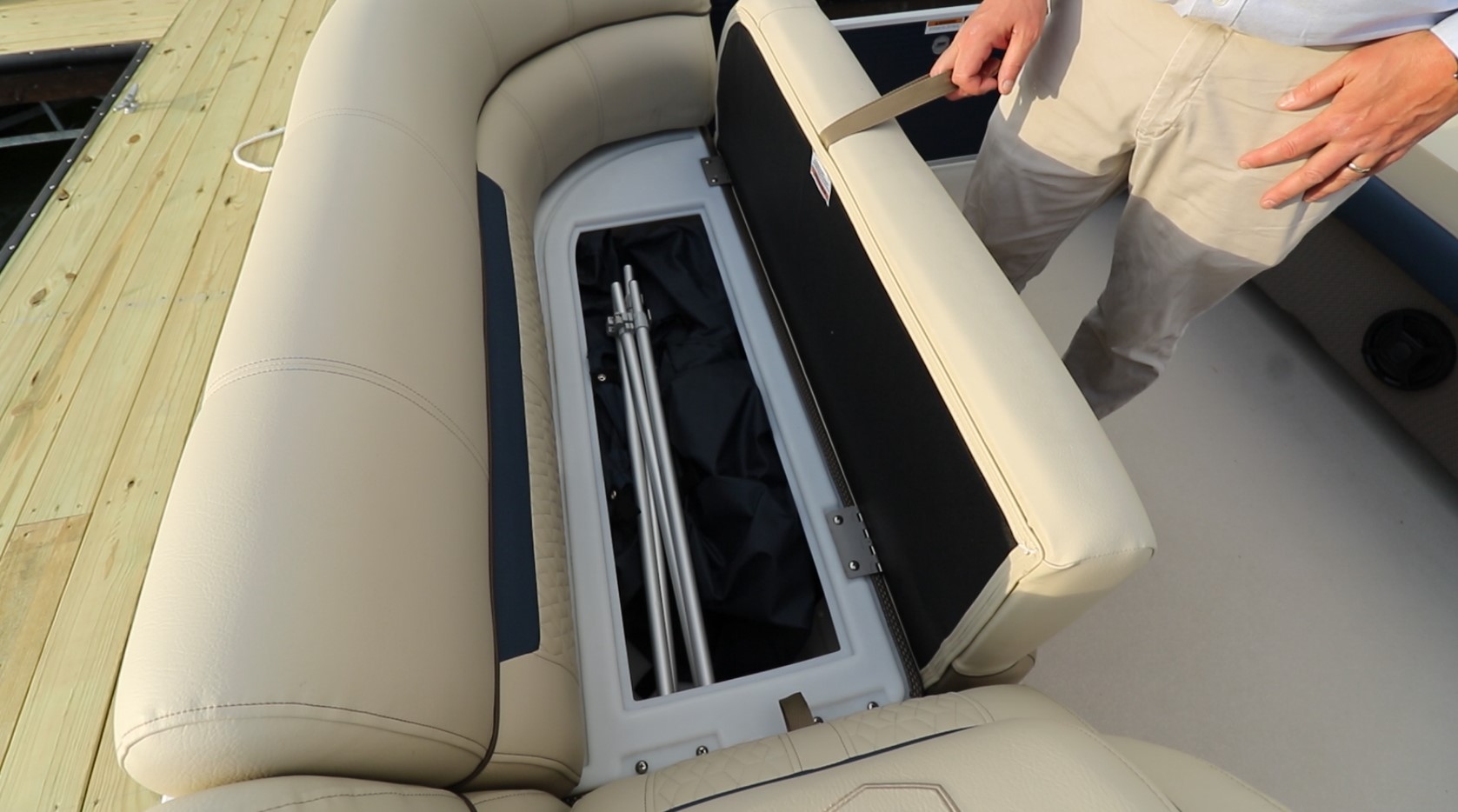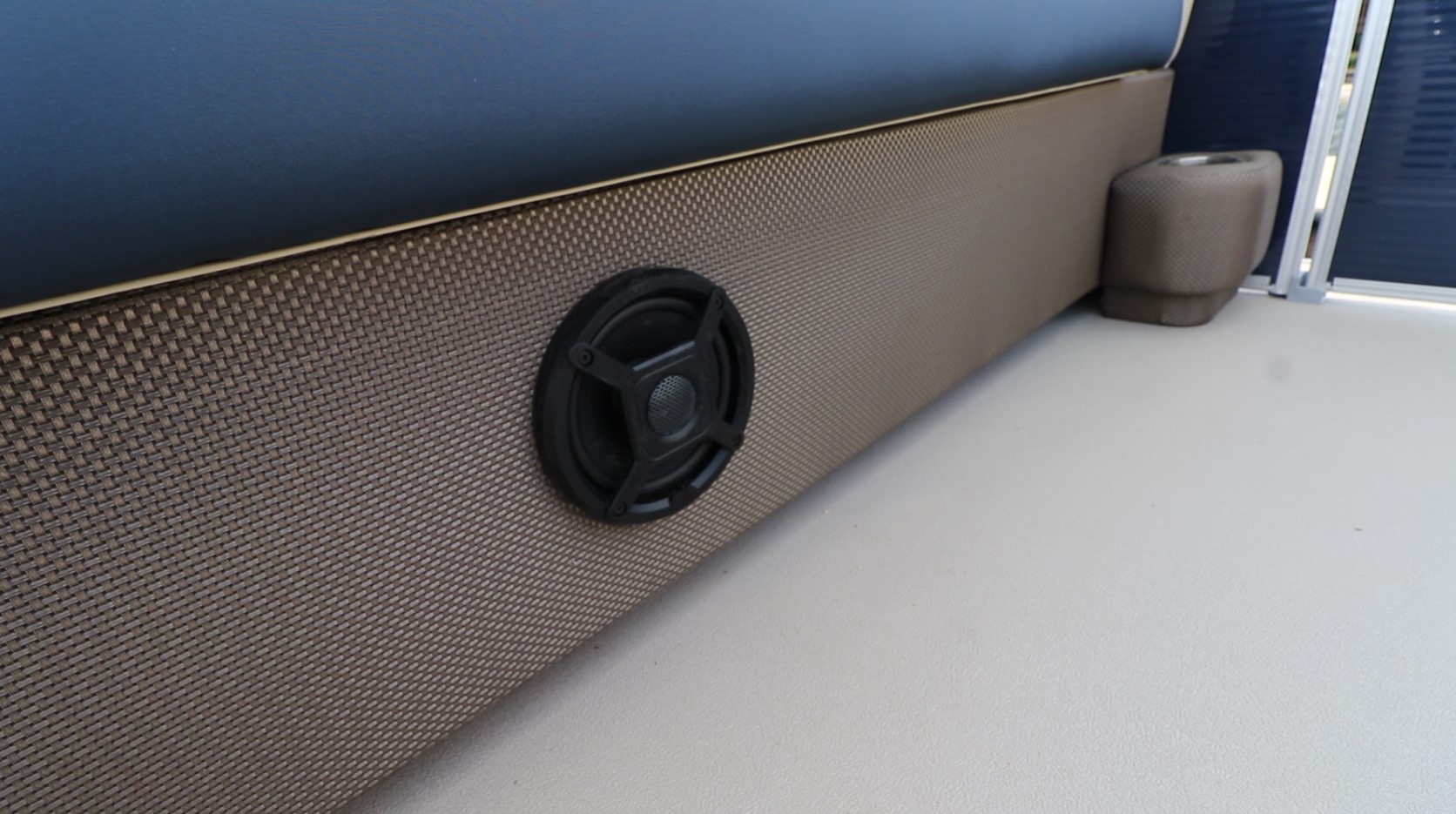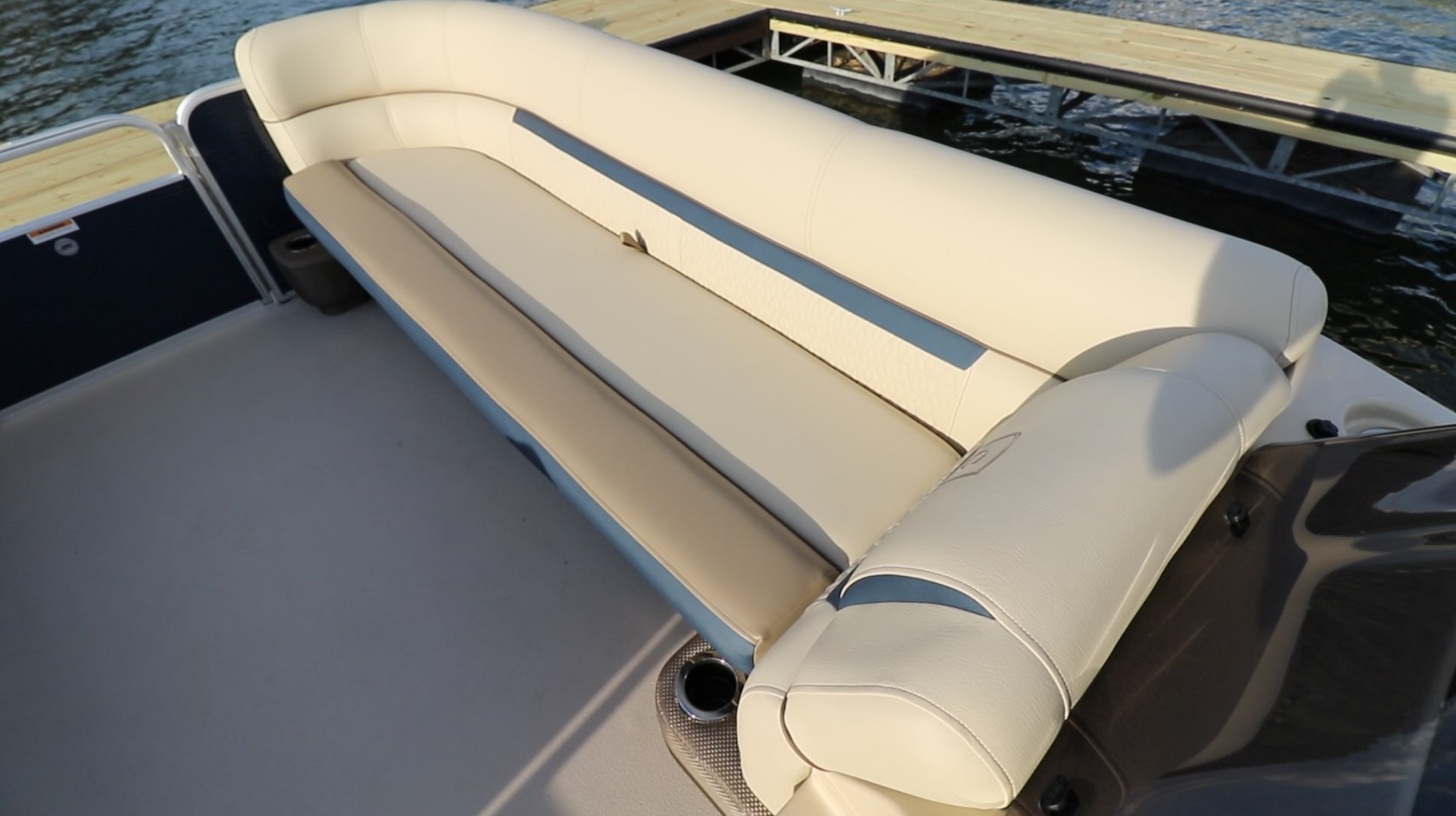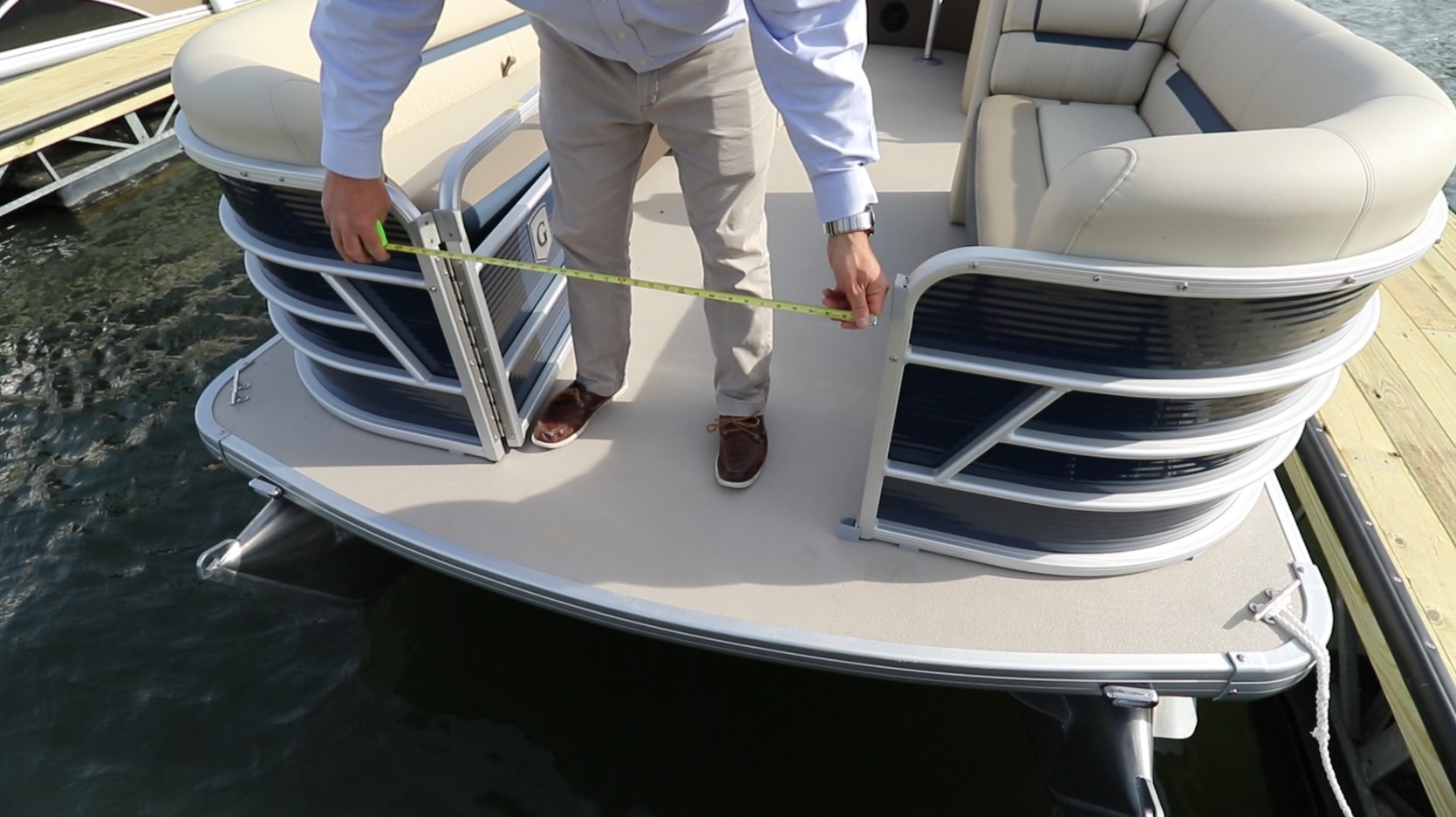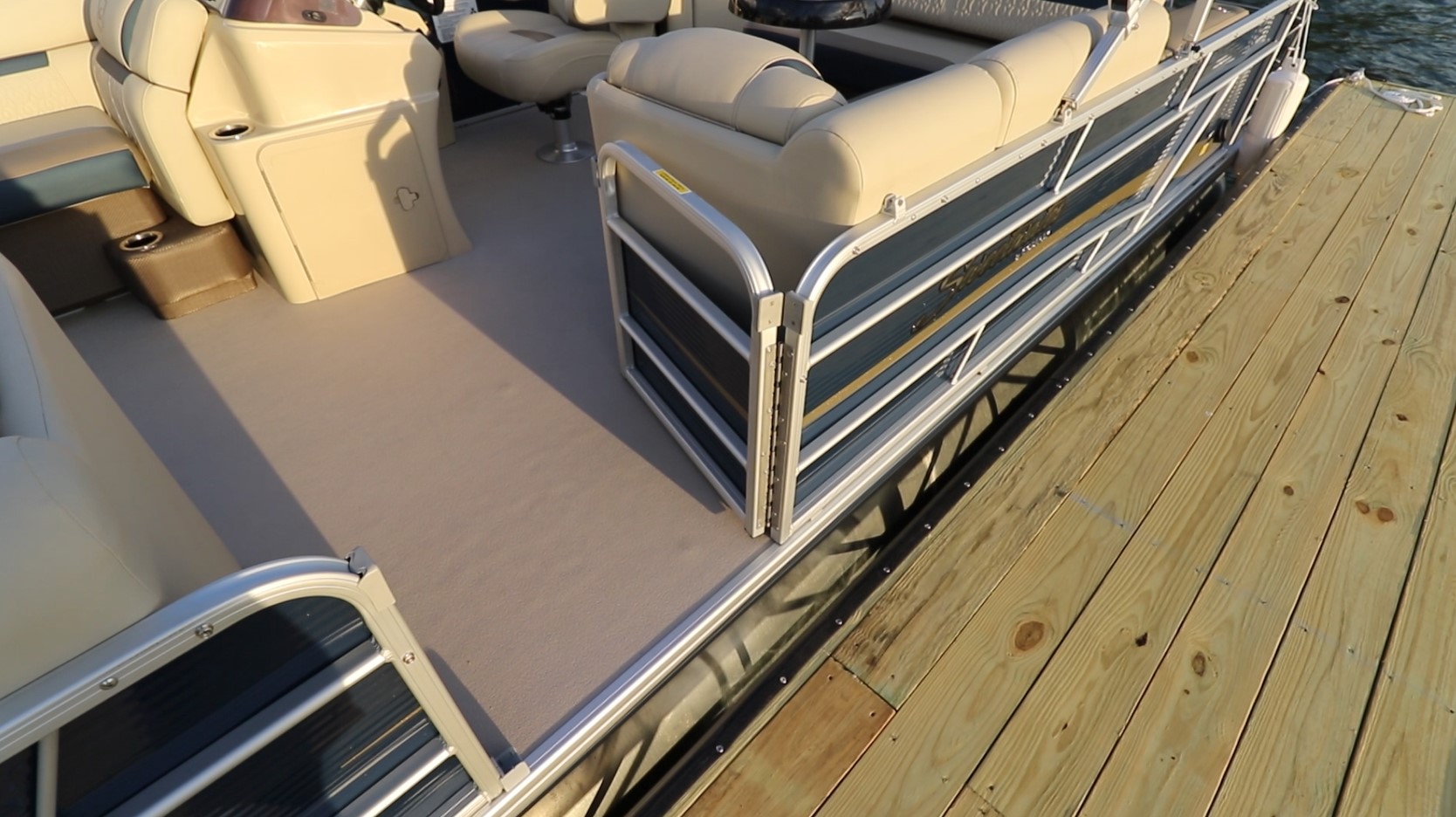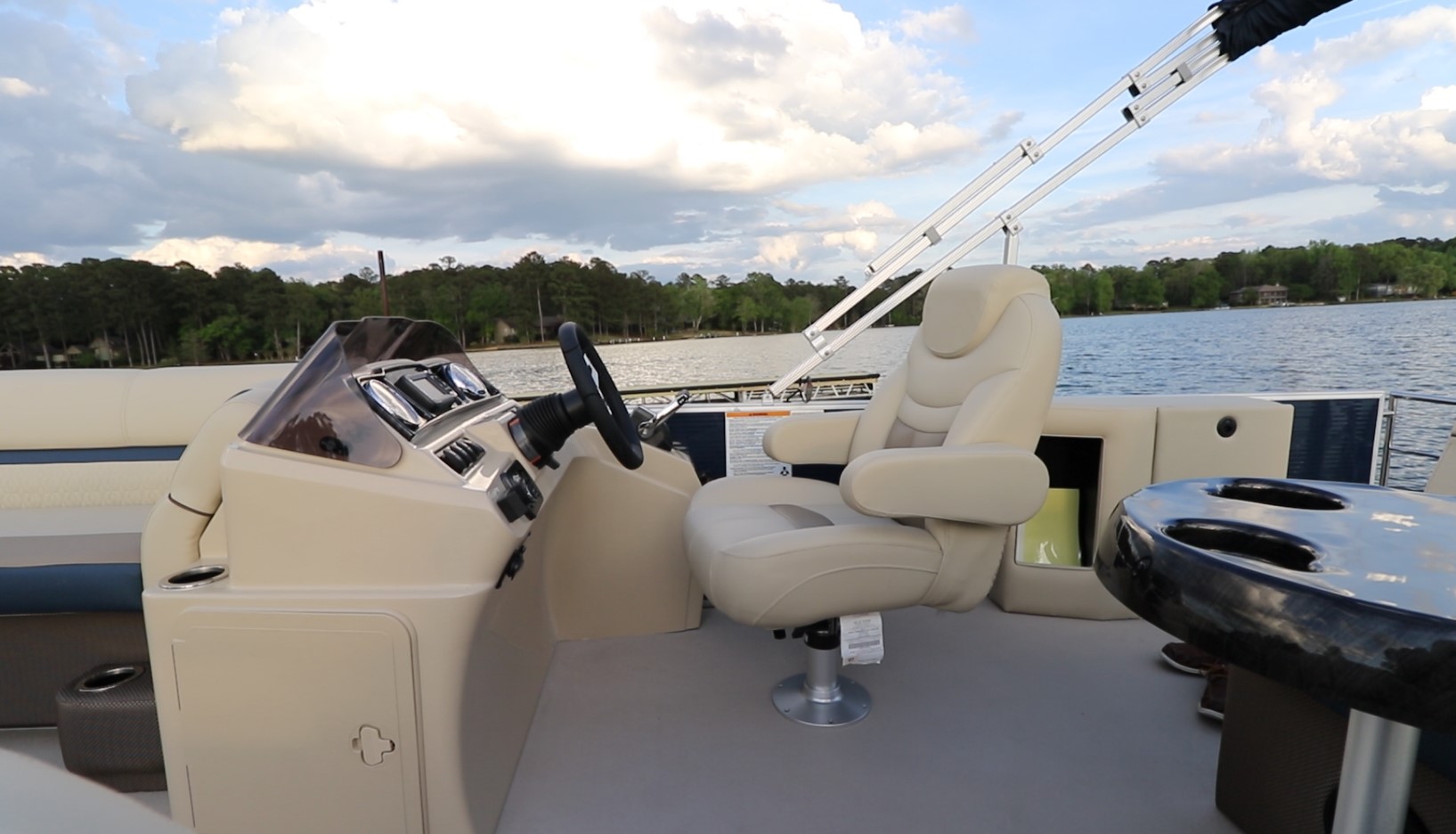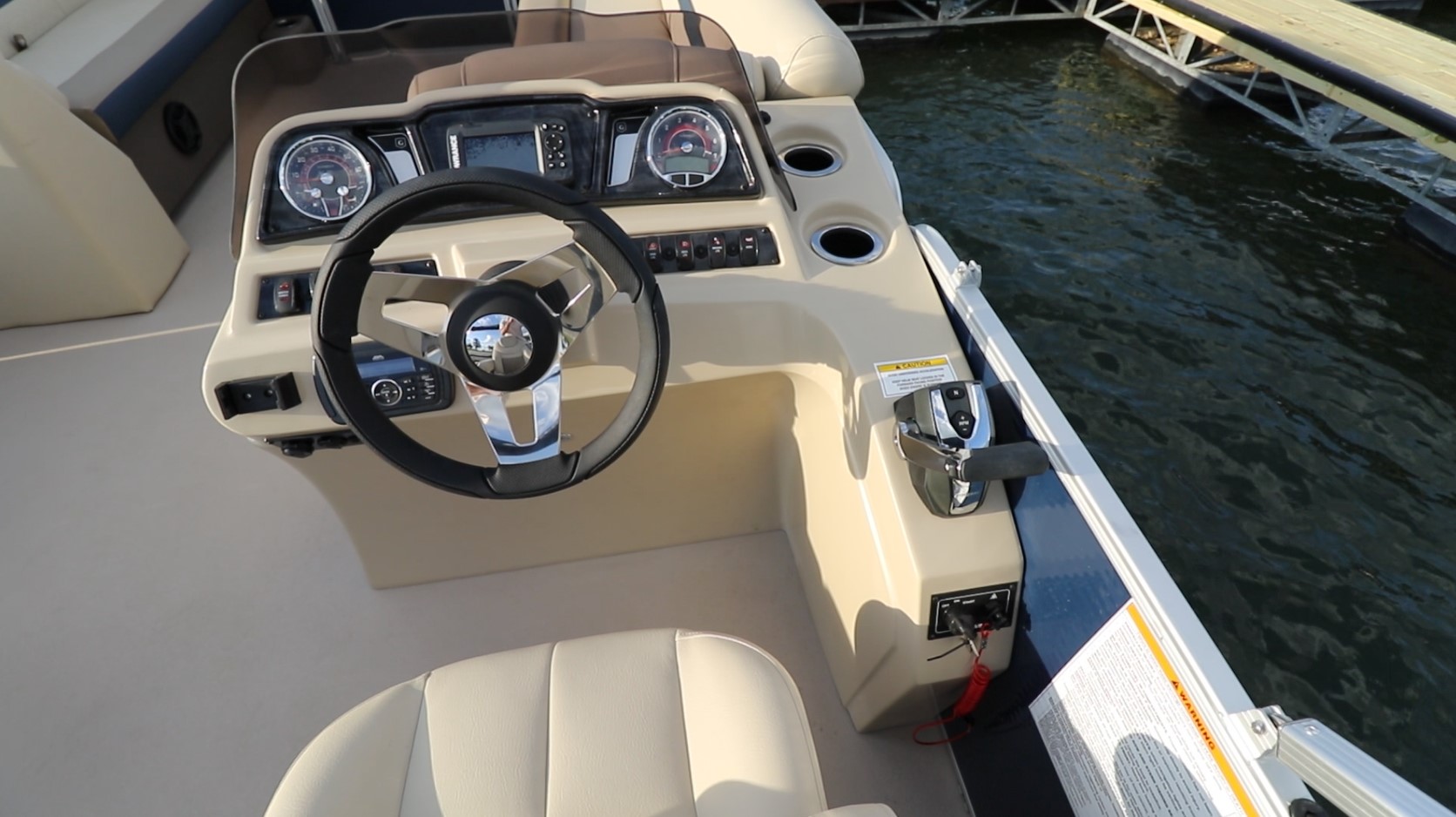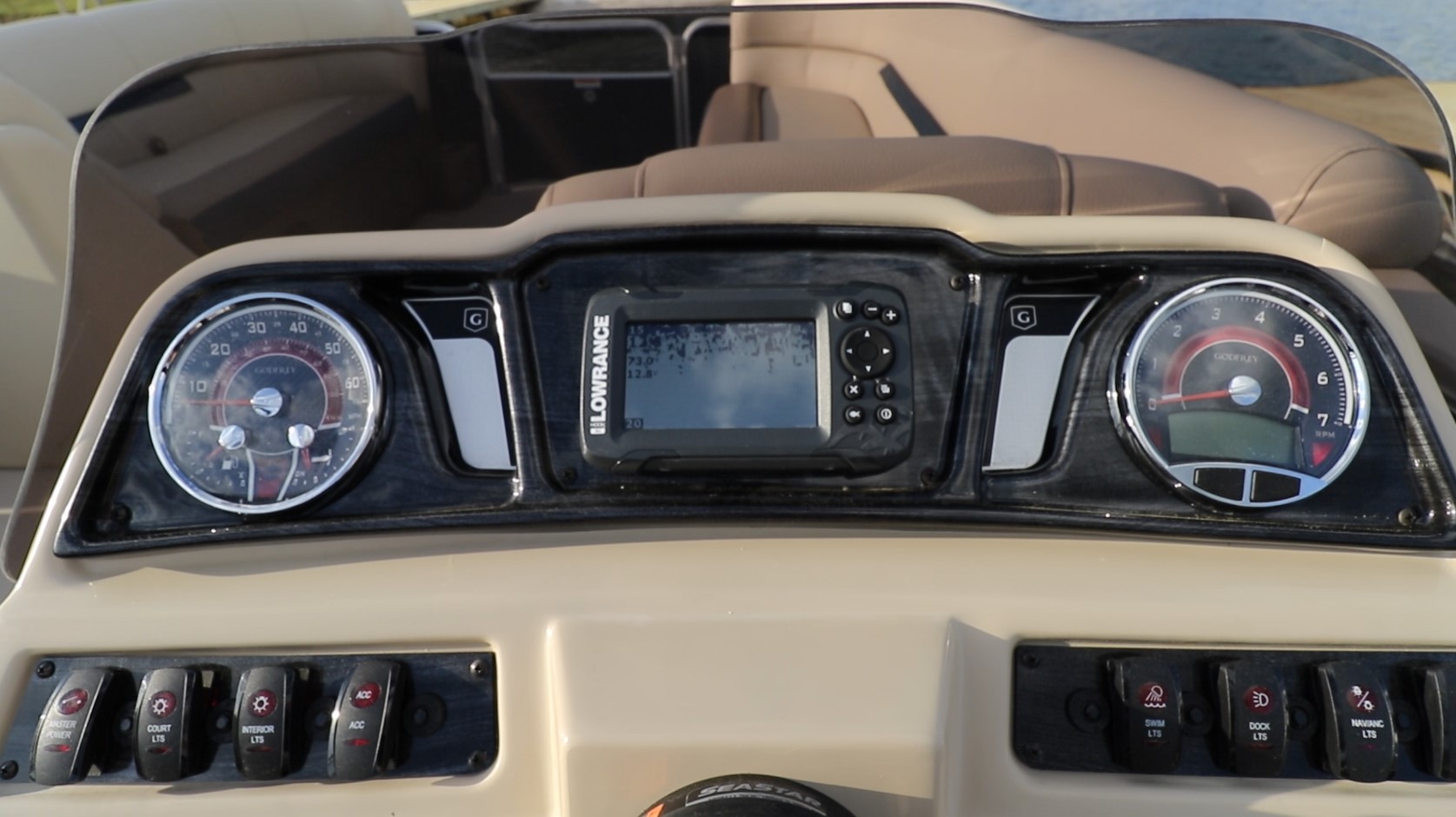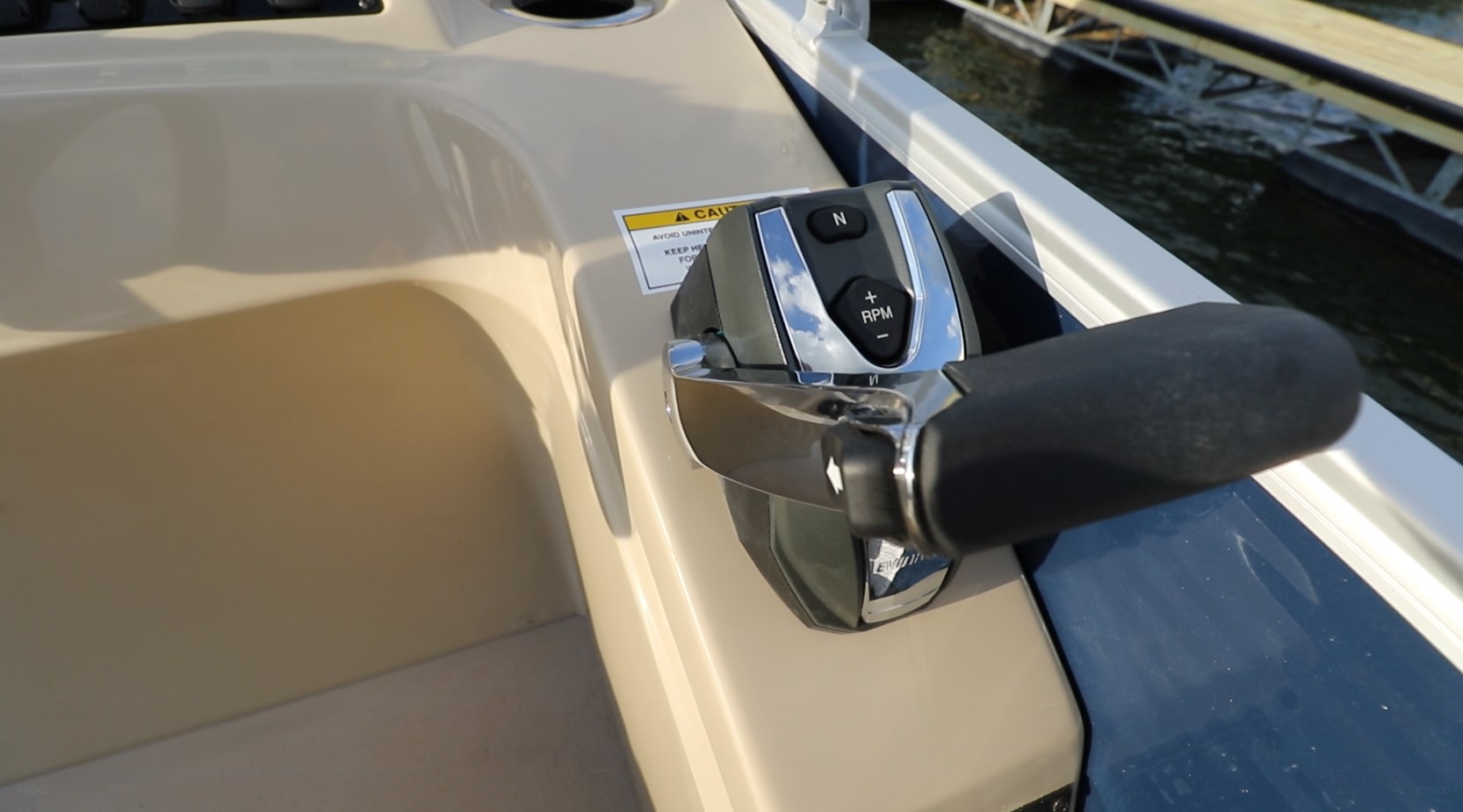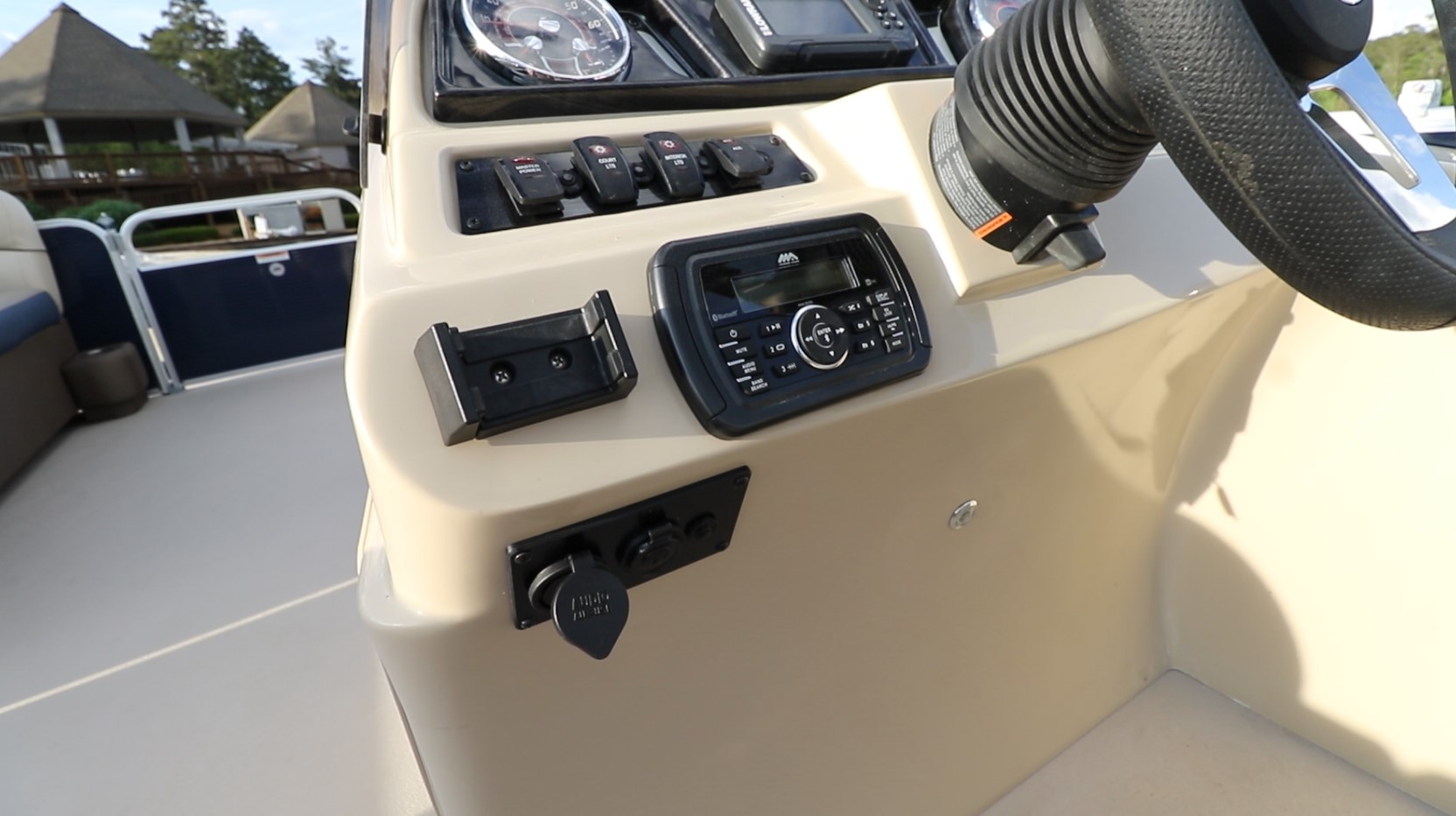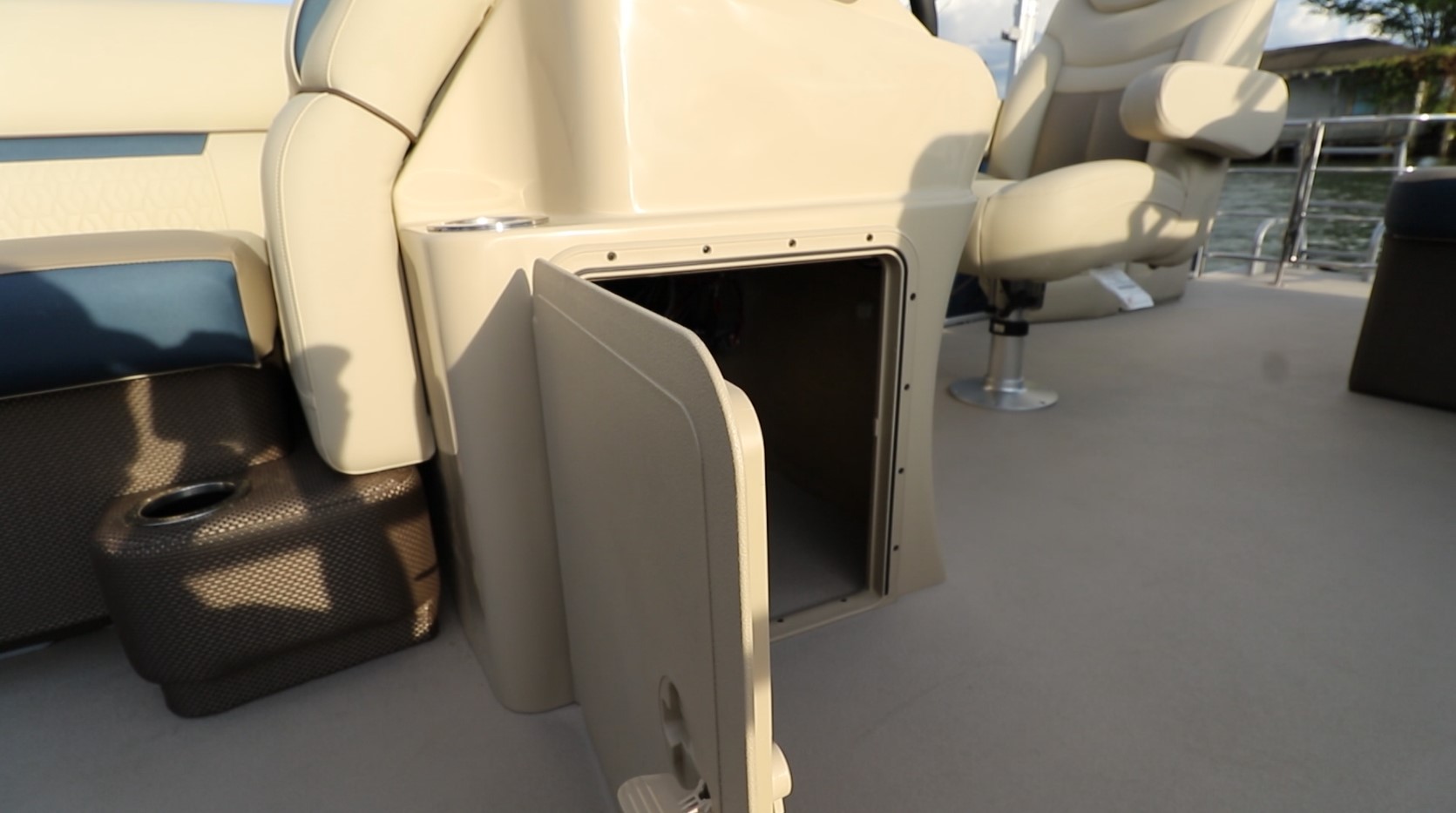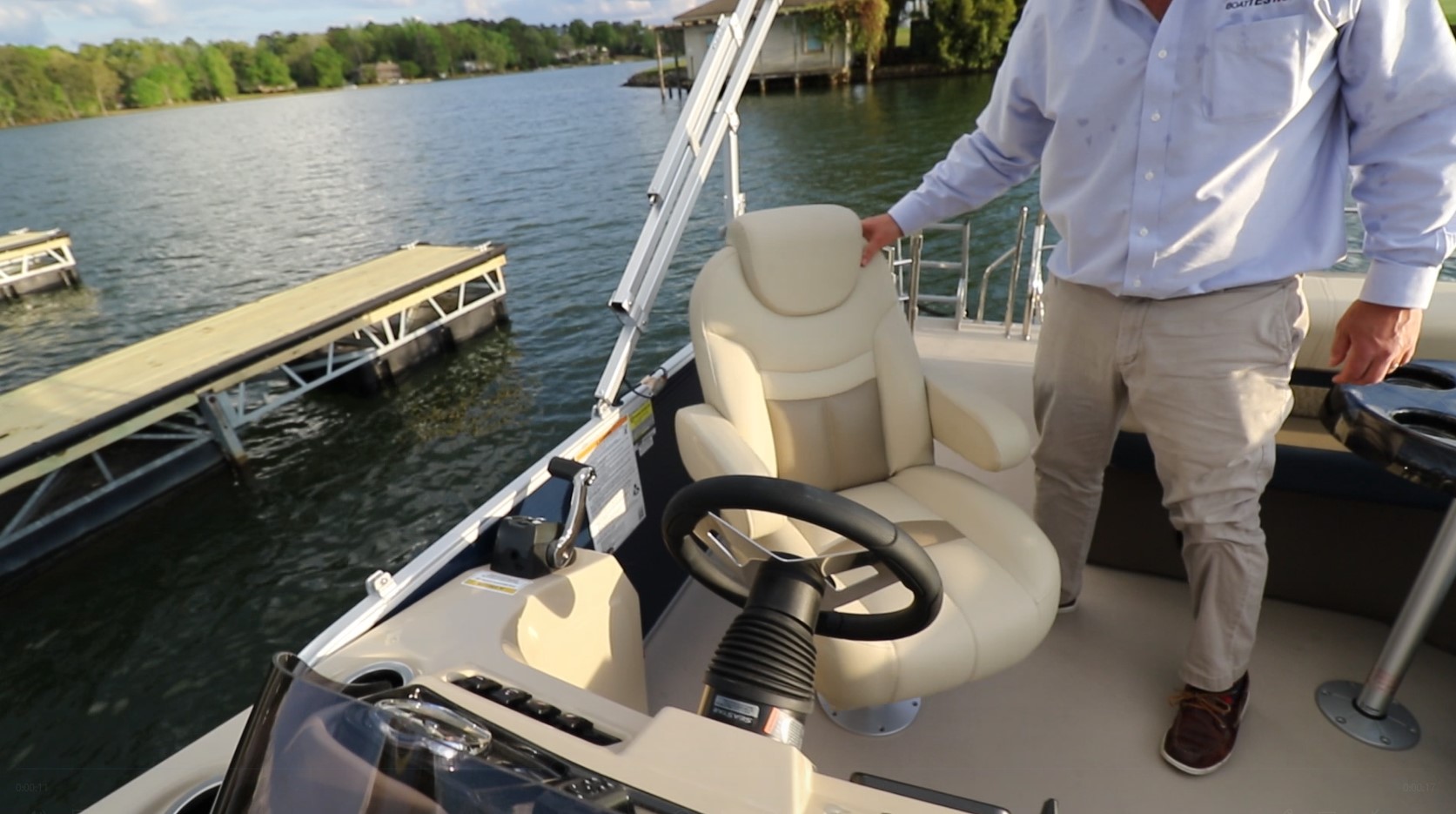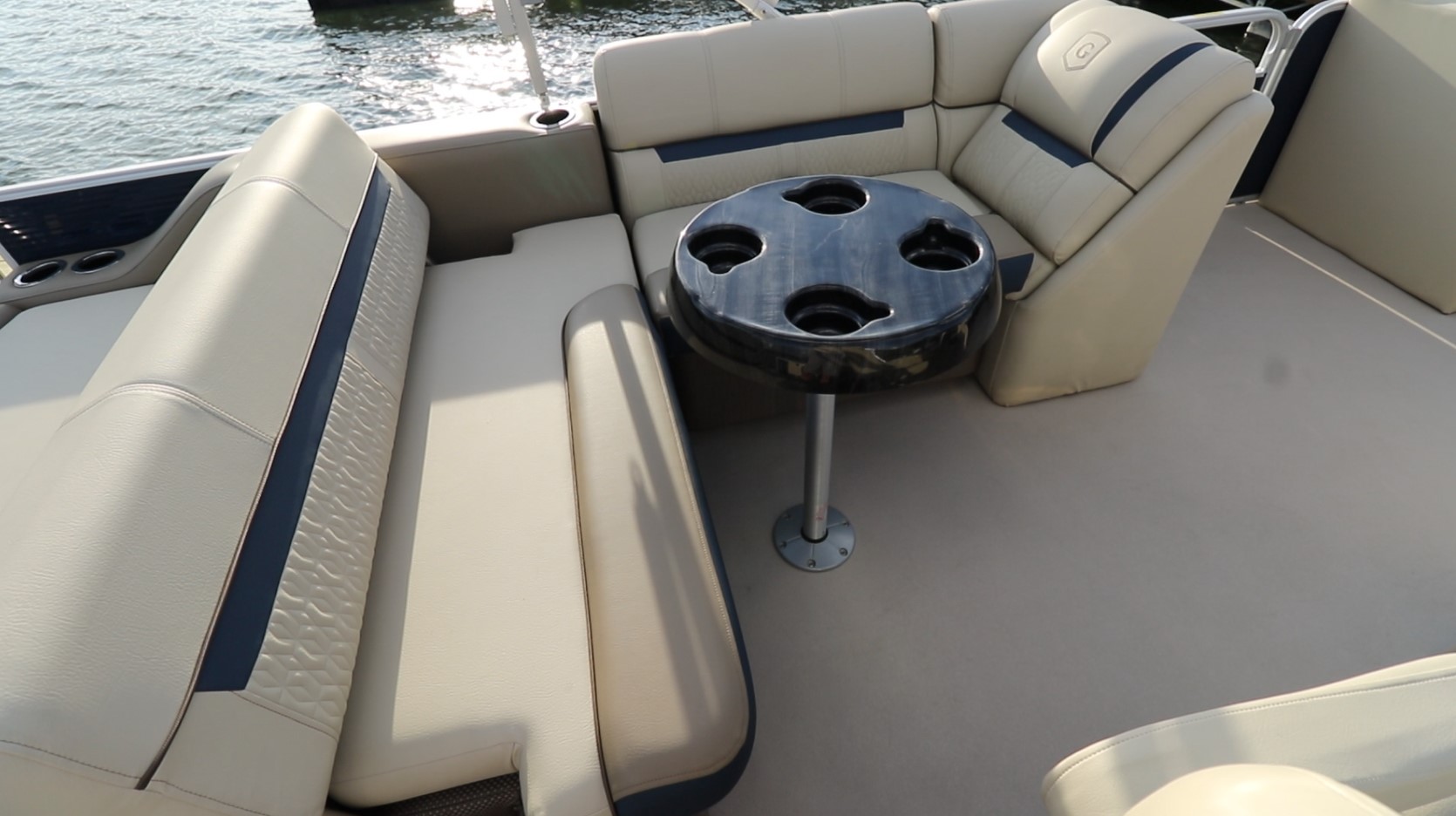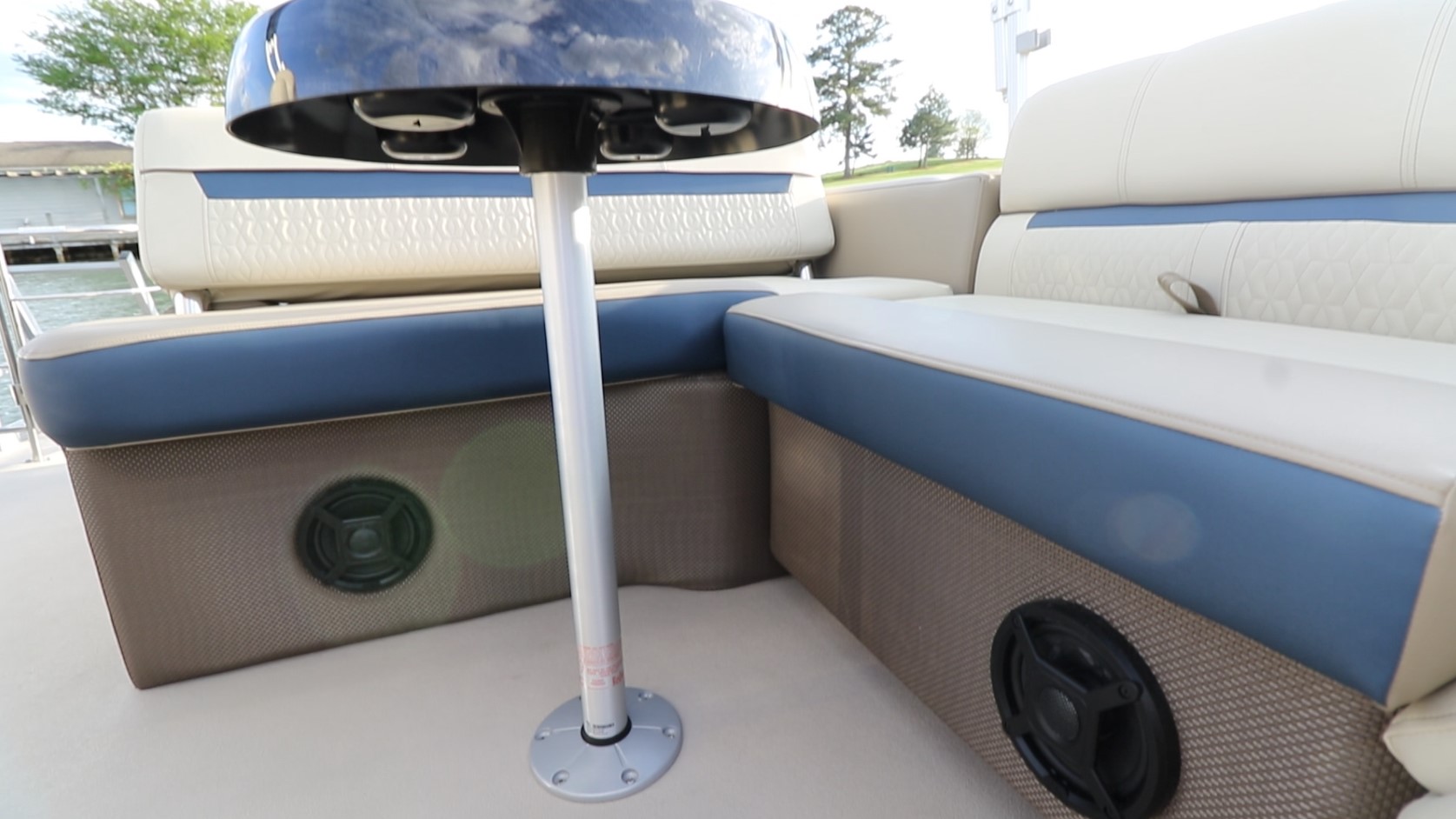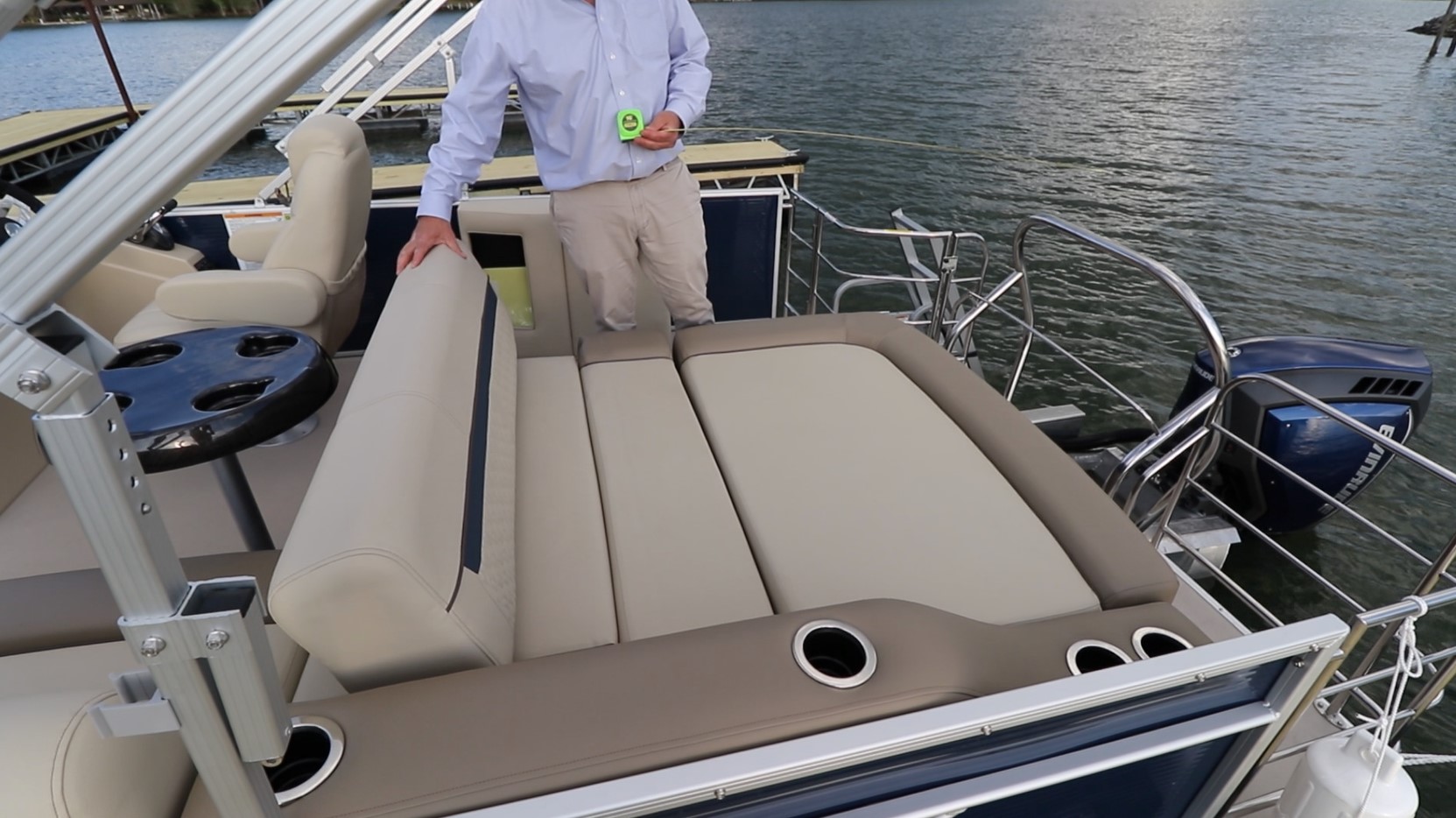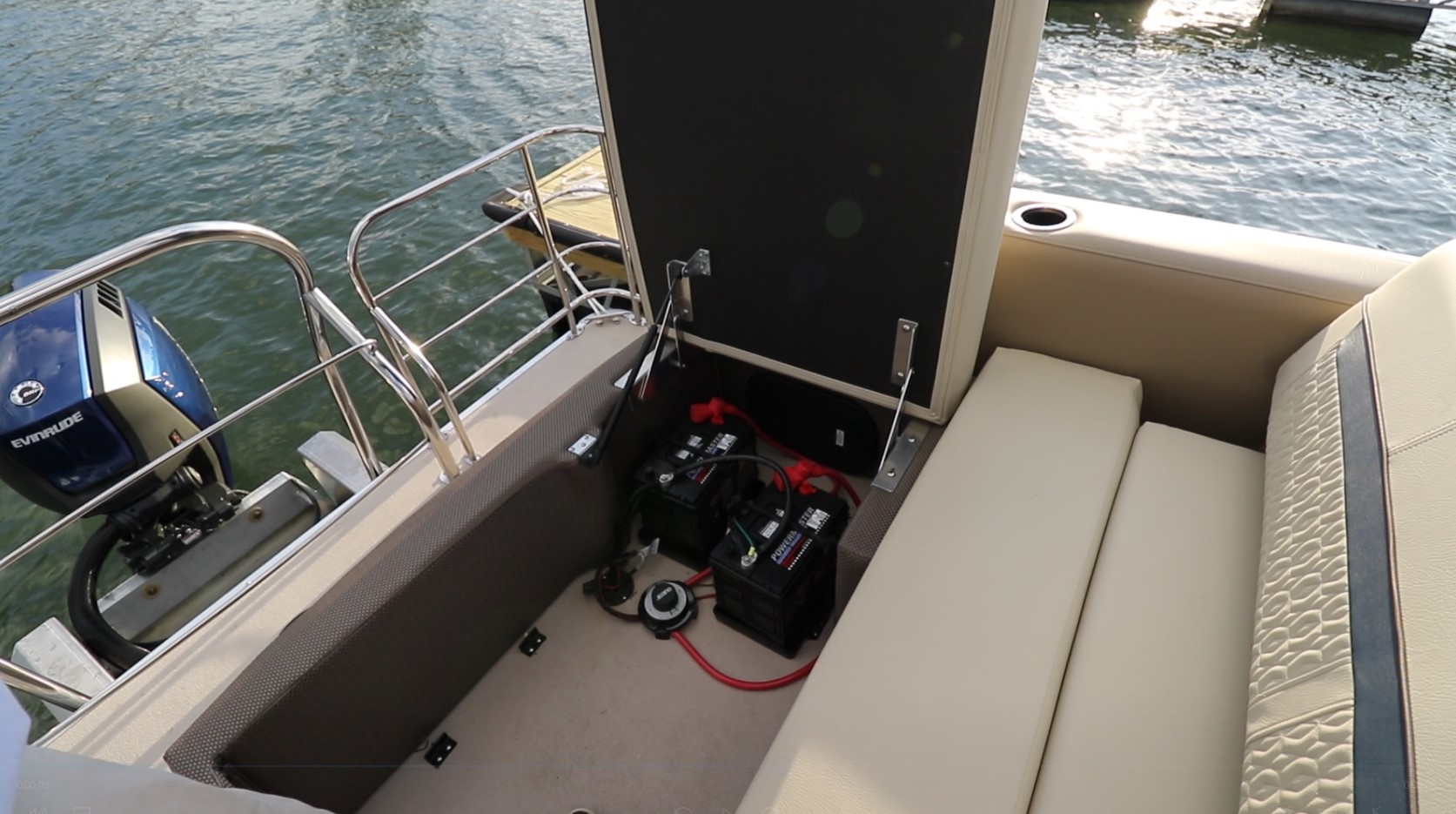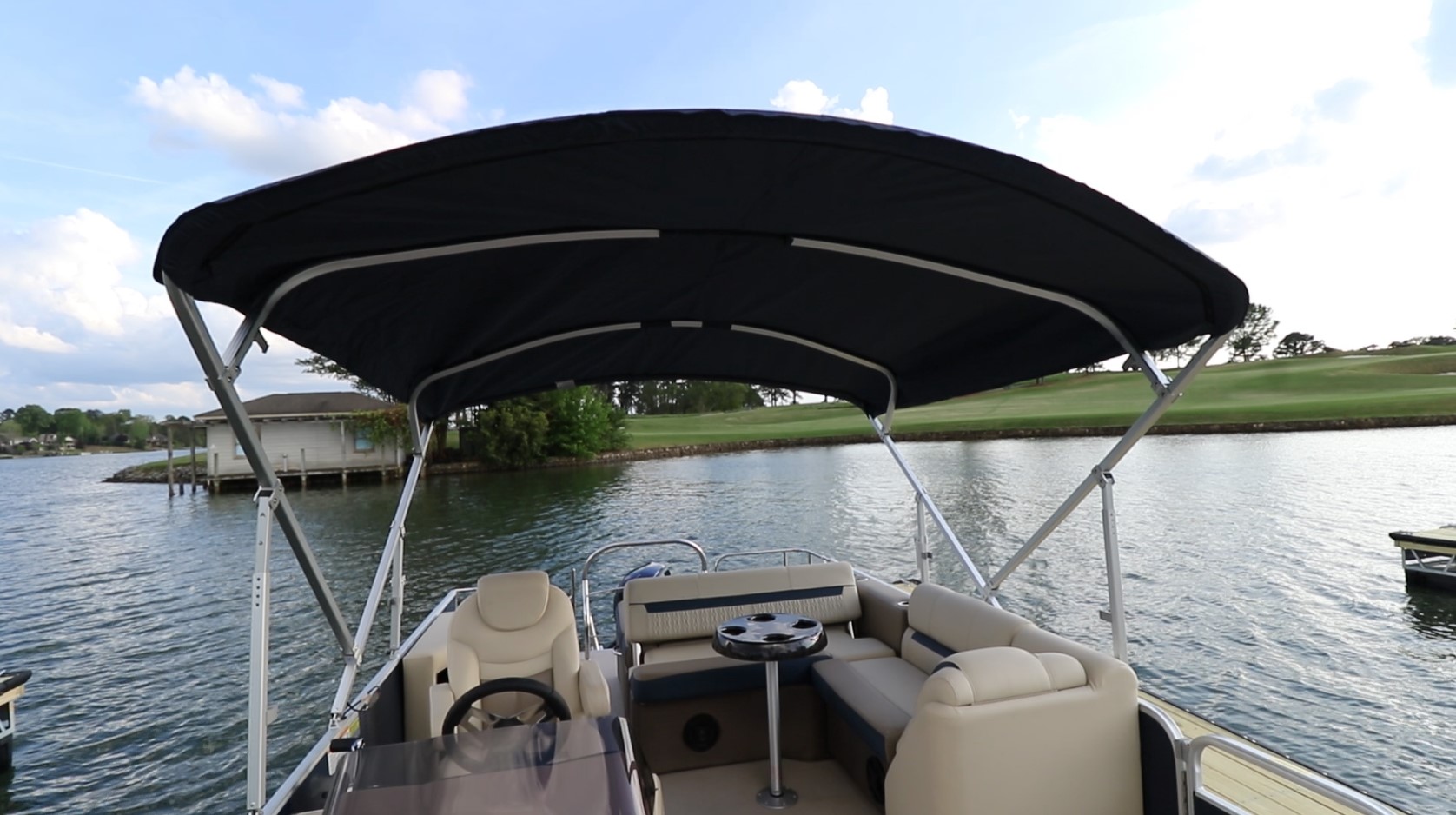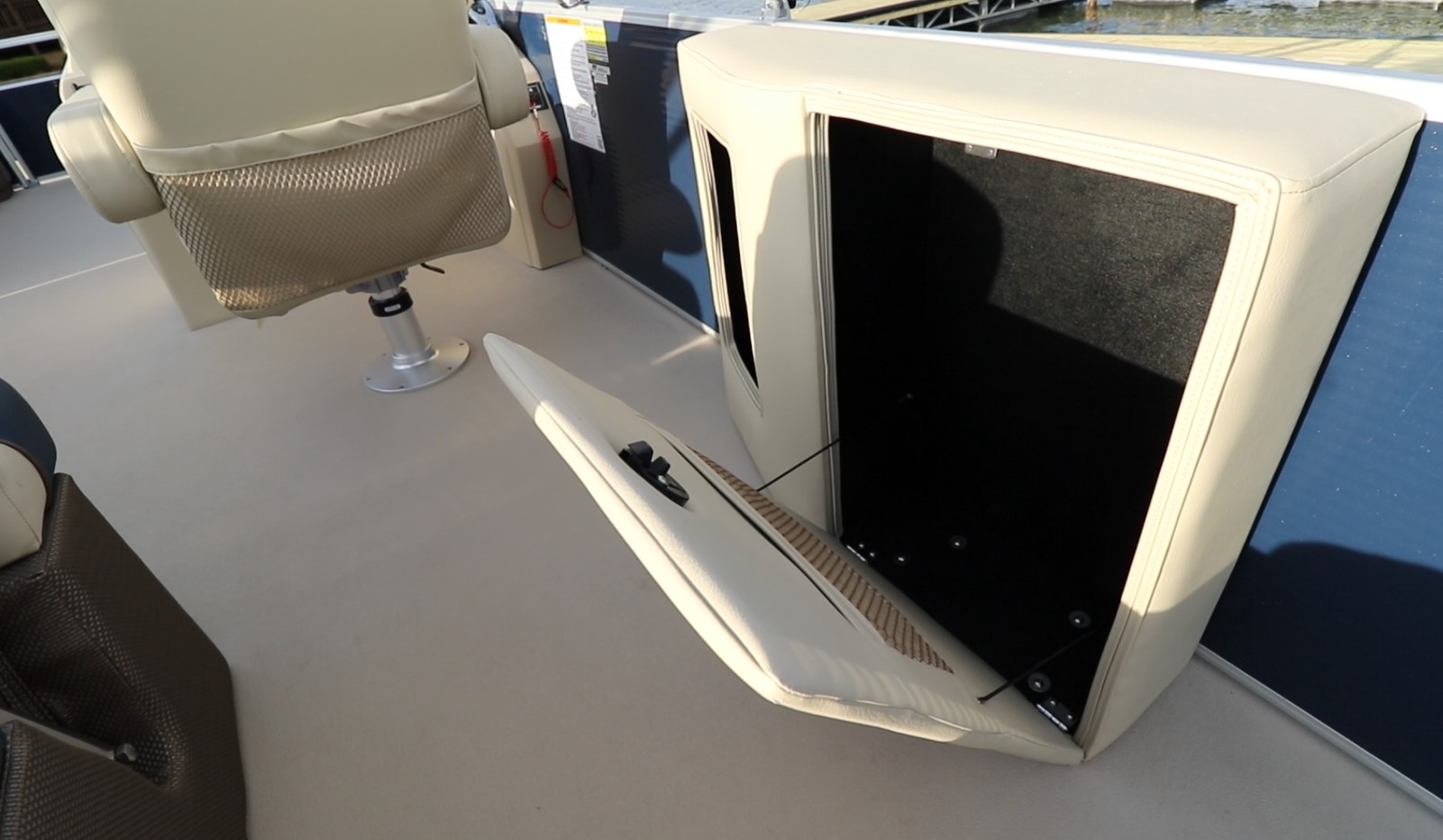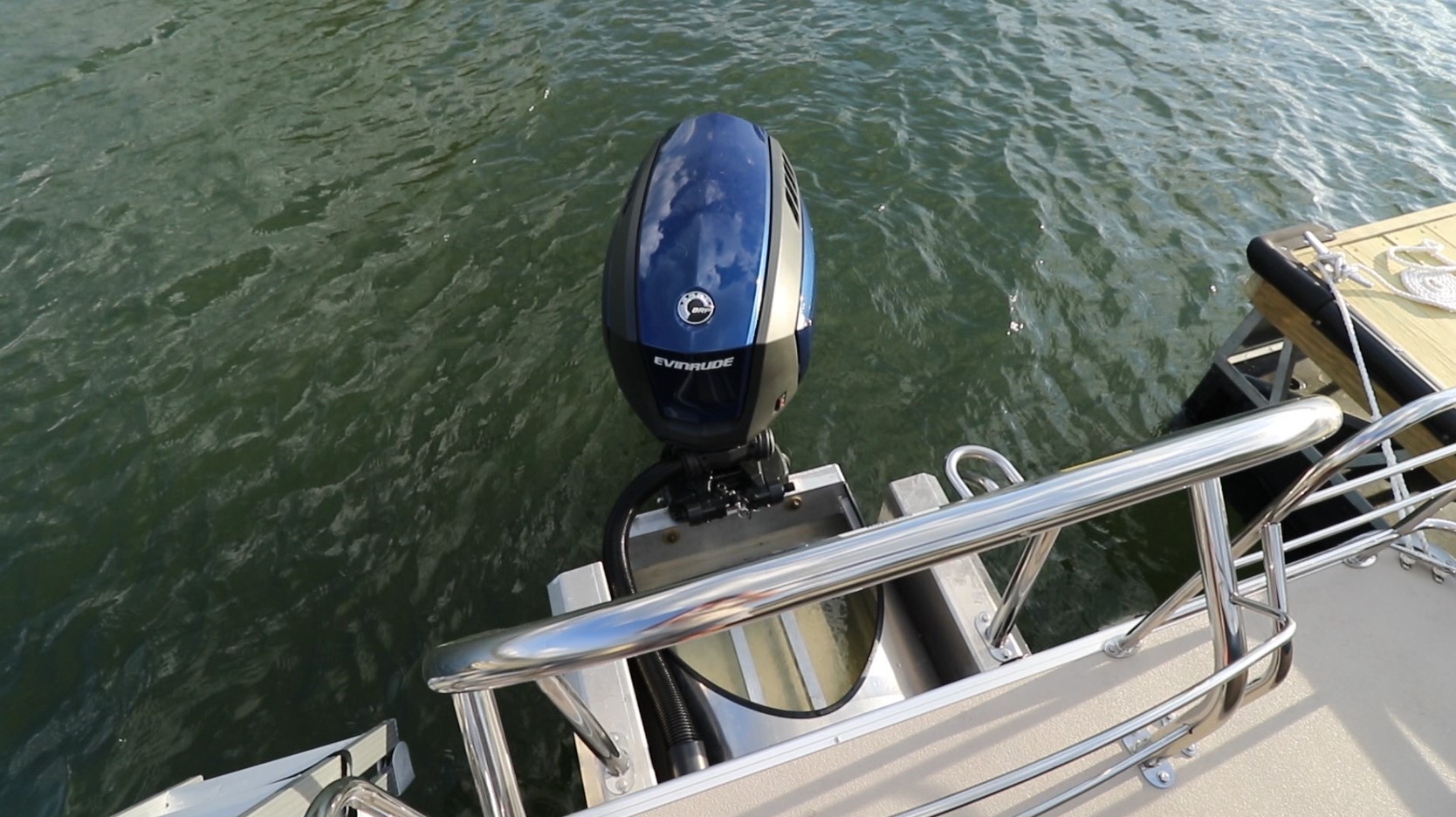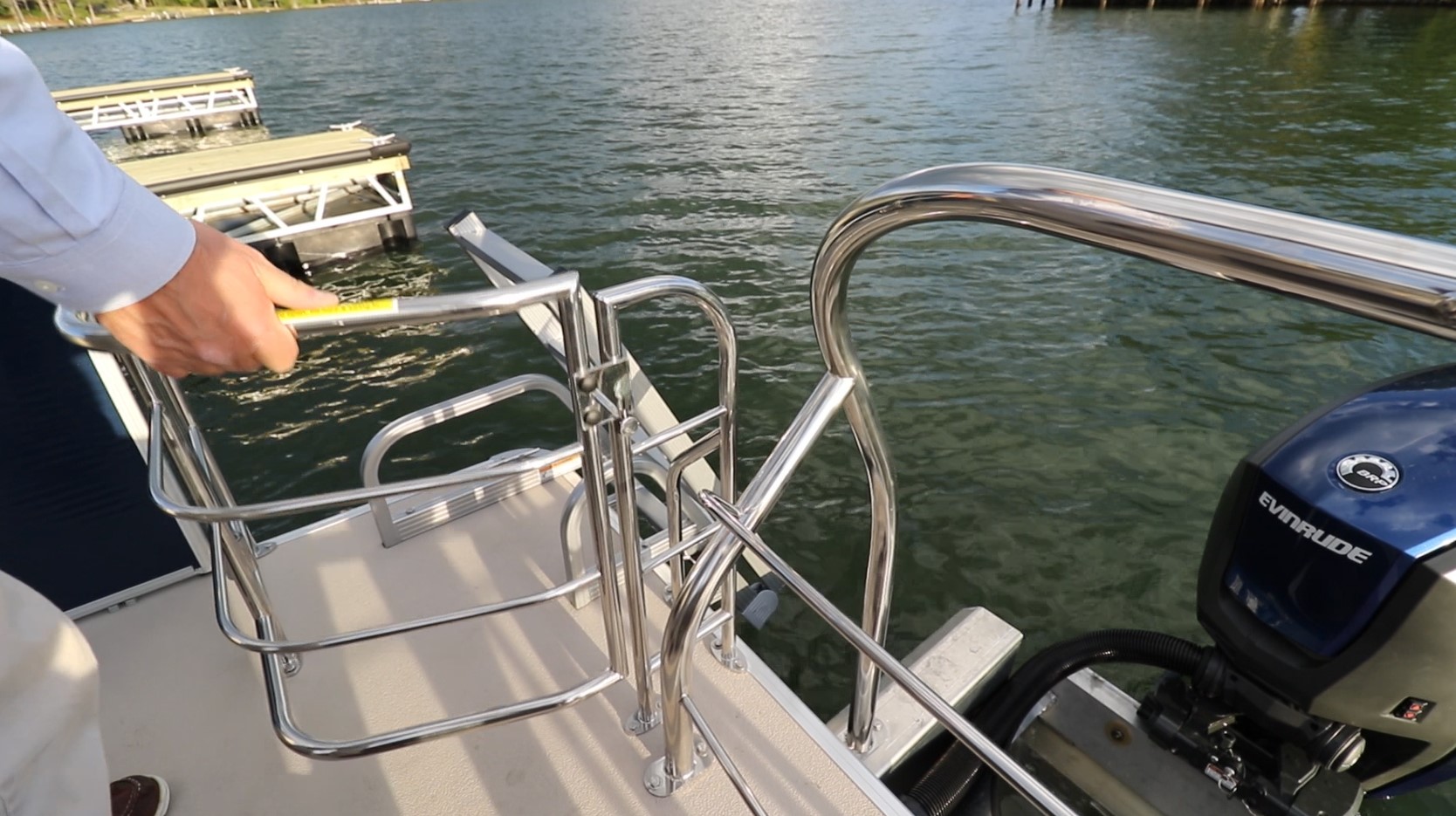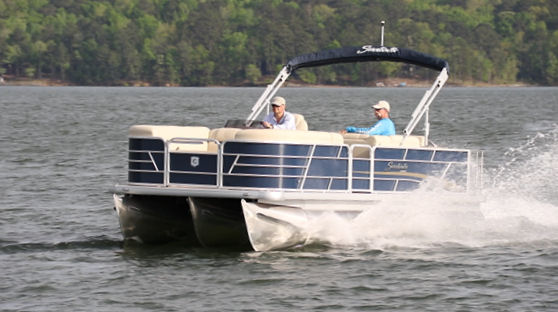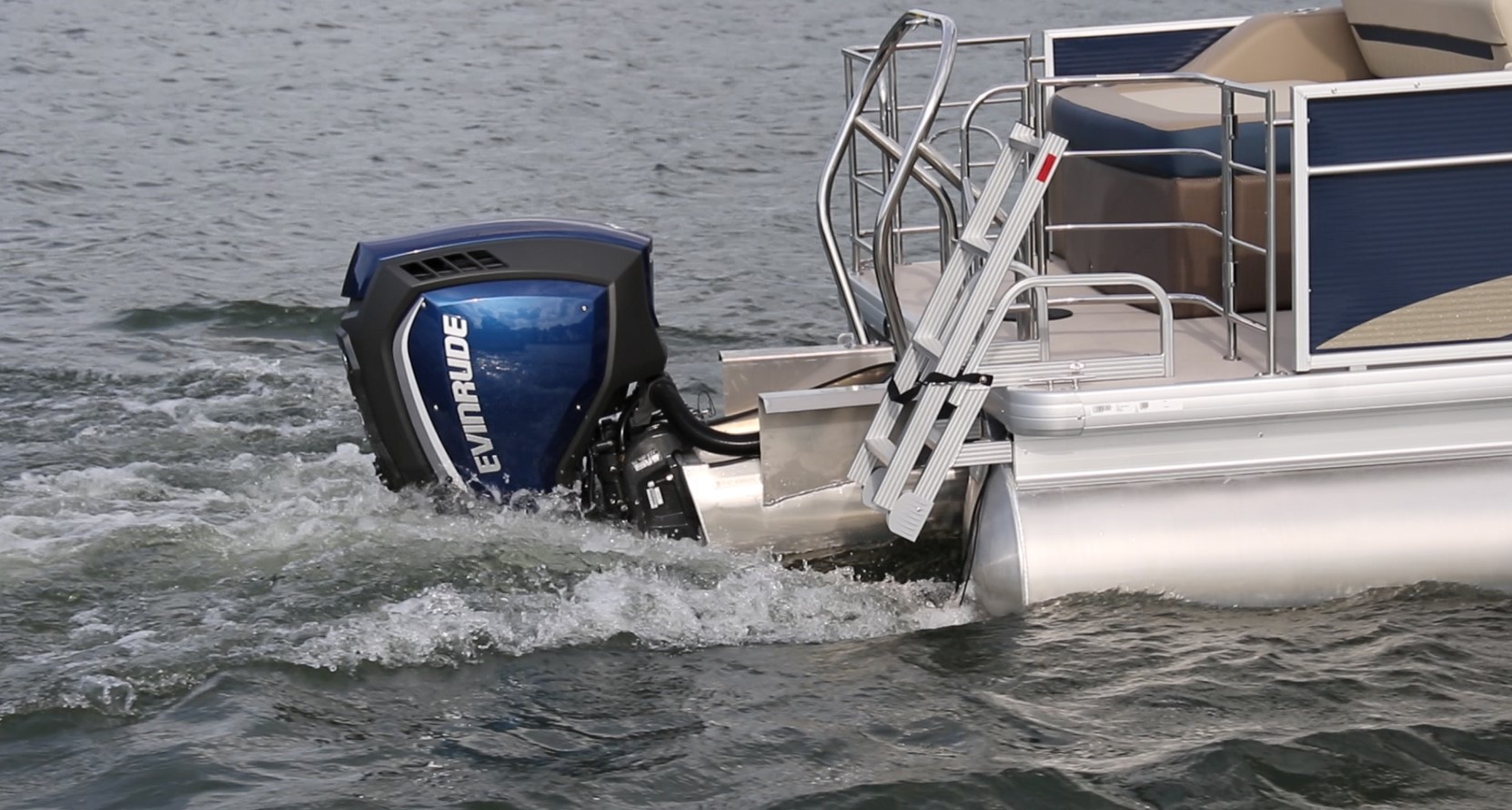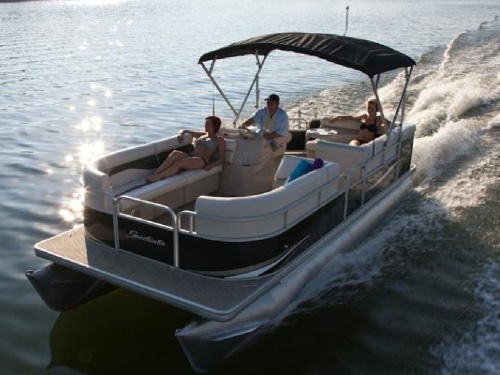Access More Boat Tests
Already have an account? Login
Sweetwater SW 2286 SFL (2019-)
1 x 150-hp Evinrude E-TEC G2 small block
Key Features
- Bluetooth/app ready/AUX stereo with 4 black speakers
- Reclining, swivel and slider Captain's chair
- Stern round table with built-in cupholders
- Starboard silver easy climb ladder
Test Results
| RPM | MPH | Knots | GPH | MPG | NMPG | STAT. MILE | NM | dBa |
|---|---|---|---|---|---|---|---|---|
| 600 | 3 | 2.6 | 0.2 | 15 | 13 | 608 | 528.3 | 58 |
| 1000 | 4.5 | 3.9 | 0.4 | 11.1 | 9.7 | 451 | 391.8 | 67 |
| 1500 | 6.3 | 5.4 | 0.8 | 8.3 | 7.2 | 338 | 293.5 | 63 |
| 2000 | 8 | 7 | 1.8 | 4.4 | 3.9 | 180 | 156.5 | 69 |
| 2500 | 11.8 | 10.3 | 2.4 | 4.9 | 4.3 | 199 | 173.2 | 70 |
| 3000 | 15.7 | 13.7 | 3.6 | 4.4 | 3.8 | 177 | 153.6 | 70 |
| 3500 | 19.6 | 17 | 5.2 | 3.8 | 3.3 | 154 | 134 | 77 |
| 4000 | 24.5 | 21.3 | 7 | 3.5 | 3.1 | 143 | 124.1 | 84 |
| 4500 | 27.4 | 23.8 | 7.6 | 3.6 | 3.1 | 146 | 127 | 81 |
| 5000 | 31.6 | 27.4 | 9.5 | 3.3 | 2.9 | 135 | 117 | 84 |
| 5250 | 34.5 | 30 | 13.3 | 2.6 | 2.3 | 105 | 91.4 | 84 |
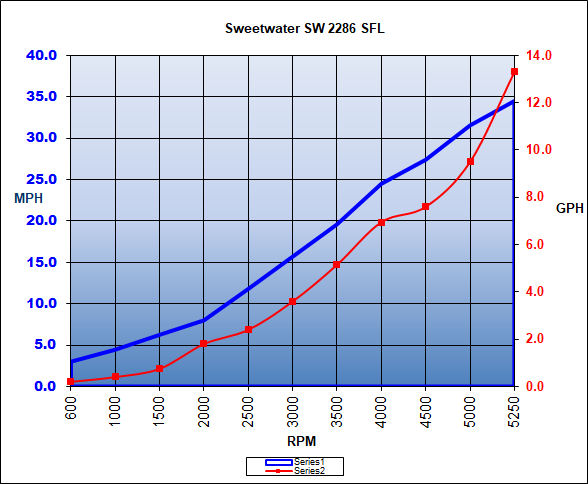
Specifications
| Length Overall | 22' 10'' / 6.96 m |
|---|---|
| Beam |
8' 6'' 2.59 m |
| Dry Weight |
2,083 lbs. 945 kg |
| Tested Weight |
2,689 lbs. 1,220 |
| Draft | N/A |
| Deadrise/Transom | N/A |
| Max Headroom | open |
| Bridge Clearance | N/A |
| Person Capacity | 12 |
| Fuel Capacity |
30 gal. 114 L |
| Water Capacity | N/A |
| Total Weight |
2,689 lbs. 1,220 |
Acceleration Times & Conditions
| Time to Plane | N/A |
|---|---|
| 0 to 30 | N/A |
| Ratio | N/A |
| Props | N/A |
| Load | 2 persons, 2/3 fuel, no water, 50 lbs. of gear |
| Climate | 84 deg., 81 humid; wind: 5-12 mph; seas: chop |
Engine Options
| Tested Engine |
1 x 150-hp Evinrude E-TEC G2 small block |
|---|---|
| Std. Power |
Not Available |
| Opt. Power |
Not Available |
Contents of Report
- Mission
- Construction
- Power
- Evinrude E-TEC G2 150-hp 1.9 L 2-Stroke Features
- Performance
- Handling
- Boat Inspection
- Bow
- Side Deck
- Helm
- Equipment Discussion
- Optional Equipment to Consider
- Price
- Observations
Mission
Godfrey says that the Sweetwater pontoon boats are the best value of all their brands. The series provides versatile layouts, and the detailed optional amenities of more expensive boats. She is for owners who want good capacity for entertaining, enough torque to get beginning boarders out of the water, yet is economical to purchase and operate. By providing a basic boat with a long list of options, owners can personalize the boat to their specific needs without having to pay for gear that won’t be used if it is included as standard equipment.
The boats are designed to accommodate a large group of guests and depending on focus, the boat can be outfitted for serious entertaining, or watersports or both. Fishing packages are also available, so in the end the boat can be upgraded to all three major applications.
Construction
Godfrey has been building pontoon boats for over half a century, introducing the first all-aluminum pontoon boats at the Chicago Boat Show in 1958.
Godfrey uses large saddle brackets to create stronger contact with the tubes and minimize racking. The saddles combined with chambered tubes provide a strong platform for the decks. The tubes are outfitted with oversized, heavy-duty, extruded spray rails.
Extruded C-Channels are used athwartships to support marine-grade PTP decking which is bolted, not screwed, to the C-channels. Optional under deck aluminum shielding extends the longevity of the plywood deck, as well as reducing noise and vibration at higher speeds.
Power
This 150-hp outboard used on our Sweetwater test boat is the largest of three brand-new mid-range outboards from Evinrude built with a 1.9-liter 3-cylinder powerhead. Because it is a 3-cylinder 2-stroke it has the lowest weight of any 150-hp engine in class – up to 89 lbs. (40.38 kg) less compared to major competitors.
It includes features previously available only at the top end of Evinrude’s engine range. Now those features are available in outboards rated 150-hp, 140-hp and the high-output 115-hp.
Evinrude E-TEC G2 150-hp 1.9 L 2-Stroke Features
• 3-cylinder powerhead
• Direct fuel injection into the cylinder
• Cleanest emissions, 3-star CARB rated
• 2-Stroke Torque
• Built-in dynamic power steering (optional)
• Fly-by-wire DTS controls
• Focused engine mounts
• Built-in oil reservoir
• iTrim automatic engine trim
• ICON touch screen engine display
• One-Touch Winterization
Evinrude started with a whole-new design and created a 1.9-liter, 3-cylinder block specifically for smaller boat applications. But the company is staying true to the principles and promise of its E-TEC G2 line, which uses state-of-the-art 2-stroke technology with direct-injection in the cylinder. This design ensures efficient and clean operation throughout the rpm range, while capitalizing on the superior torque that 2-strokes provide.
The new engines, including the E-TEC G2 115 H.O., the E-TEC G2 140, and the E-TEC G2 150, fill a need in the market where the 4-stroke outboards just don’t have the torque needed to power the beamier, equipment-loaded boats that boaters are finding on the market today.
New Outboard 2-Stroke Technology. The secret of the prodigious torque from the new Evinrude E-TEC G2 150 3-cylinder outboard engine is incorporating the Rotax Adjustable Valve Exhaust (RAVE) system. This proven technology essentially supercharges the combustion chamber with air that has been expelled from the cylinder and bounces it back into the combustion chamber.
The RAVE system is able to do this because fresh intake air scavenges and pushes out the exhaust. Blades in the exhaust manifold intercept the fresh air and force it back into the combustion chamber, thereby compressing the air and providing a higher oxygen content in the cylinder.
This process is called “plugging pulse” and it is not possible to replicate on 4-stroke engines. It provides more torque and horsepower, with less weight and lower fuel consumption.
All Evinrude E-TEC G2 outboards run on 87-octane fuel, and also have an internal fuel filter that functions as a fuel-water separator. There’s no need for an external fuel filter, and the water detector notifies the owner if the fuel is contaminated.
The onboard oil reservoir holds 1.9 gallons (7.19 L). Once the top cowling section is removed, the yellow oil-fill cap is visible. When the reservoir is filled, the oil supply will last for 50 to 60 hours of engine run-time, a whole season for most boaters, and usually it’s even longer for low-rev pontoon boats which spend about 60% of their time under 1000 rpm.
The E-TEC G2 engine never needs oil changes, and its oil is always clean, reducing the chance for cylinder wear, unlike 4-stroke engines which reuse dirty oil for up to 100 hours.
Where 4-stroke engines permit only limited revs for the dozen or more hours of operation, Evinrudes are programmed to simply double-oil the cylinders for the first 2 ½ hours of operation.
A typical cause of outboard engine break down is the absence of lube oil in the gear case or too much water in that lube oil. That is caused by water condensation in the gear case, or leaky seals in the prop hub.
Evinrude has solved this common lower-unit lubrication problem with an expansion tank for gear oil, which means the gear case is always topped-up with lube oil, and when it heats up, the hot oil has a place to go instead of blowing out a seal.
Evinrude uses an ultra-hpf gear fluid, which can continue to lubricate even if it’s contaminated by up to 25 percent of its volume with water.
Internal power steering is a low-priced option on E-TEC G2 150s, but a costly option on all 4-stroke engines. When the cost of power steering is compared between the Evinrude 150 and 4-stroke 150s, the Evinrude package is usually less costly.
The power steering pump is integrated into the the mounting bracket, and is not external as on most 4-stroke engines. The internal power steering pump is a major advancement in outboard engine design, an industry first, and makes installation and repowering much easier and less costly.
The steering system was responsive and each turn of the wheel caused the boat to react immediately. We experienced no “pull” or resistance to one side, as normally felt with conventional cable or even hydraulic systems because of the torque of the prop.
Helical worm gears over worm gears make for integrated power steering that gives excellent response. Evinrude’s dynamic steering lets the owner set the feel of the steering as the boat moves from low to high speed through the ICON touch display. Best of all, it is contained in the engine mount, and not external in the outboard well.
Evinrude included the iTrim automatic trim system in their new mid-range lineup, helping the boat perform the way it should even with a novice at the wheel. This has had a huge impact on owners we have talked with because it lets all members of the family operate the boat without the stress of trimming.
There’s only a fuel line and a few fly-by-wire control cables in the rigging tube. The rigging tube is stationary, affixed to the mounting bracket, not the powerhead that turns when the outboard is steered. Since the rigging tube doesn’t have to move, it can be shorter and minimizes chafe.
Performance
We tested the Sweetwater SW 2286 SFL with a LOA of 23’6” (7.16 m) and a beam of 8’6” (2.59 m). Its three pontoons are 25” (63.50 cm) in diameter. With an empty weight of 2,440 lbs. (1,107 kg), 31 gallons (117 L) of fuel and two people onboard, we had an estimated test weight of 3,653 lbs. (1,657 kg).
With the 150-hp Evinrude E-TEC G2 outboard powering our test boat, we reached a top speed of 34.5 mph (55.5 kph) at 5250 rpm. Best economic cruise came in at 2500 rpm and 11.8 mph (19 kph). It was at that speed that the 2.4 gph (9.1 lph) fuel burn translated into 4.9 mpg (2.09 kpl) and a range of 199 statute miles (320 km). The key number is the mpg number: In this case it was 4.9.
Evinrude estimates that 60 percent of the engine runtime on a pontoon boat is spent below 1000 rpm, where she got 11.1 mpg for a range of 451 statute miles. This is significantly better mileage than most 4-stroke engines will get at this rpm.
Sound Readings. We recorded the engine noise level at that speed at just 67 decibels—that’s quiet considering a normal conversation is 65 decibels. Even at cruise she makes 70 decibels, while wide-open throttle is just 84 decibels, which is relatively low for a pontoon boat.
Noise Levels

That quiet operation is helped by a reduction in vibration, thanks to focused engine mounts that reduce the amount of motion the powerhead can impart to the engine bracket and thus to the boat.
Handling
The Sweetwater SW 2286 SFL tri-toon showed just what to do with that Evinrude power, swinging the boat through turns at full speed, and with a flat running attitude. In most respects, this boat handled as expected in the calm conditions we encountered.
Boat Inspection
Bow
The seating for 12 of the SW 2286 SFL begins in the bow with a pair of opposing settees forward. The portside settee seats three facing inboard, and has an angled aft backrest so a single occupant can face forward and stretch out.
The seat cushion lifts on inboard hinges to reveal storage. The lockers beneath the seats are rotational molded one-piece plastic tubs that won’t get waterlogged or corrode over time and will help keep their contents dry.
To starboard is a settee capable of seating four adults. It backs up to the helm console, with a similar angled aft backrest to encourage individual legs-up lounging. A large locker beneath can stow life jackets for the crew as well as fenders.
A foredeck extends 10” (25.4 cm) beyond the gate, and we’d like to see a few more inches here to make accessing the cleats easier. To port and starboard are cleats to tie up the boat, though we don’t see any anchor storage or suitable centerline anchoring cleat. Anchor storage is optional, pull-up stainless steel are optional, and virtually no pontoon boat on the market has a pull centerline cleat for an anchor rode.
Side Deck
There’s an amidships boarding gate on the port side. The gate is 25” (64 cm) wide and opens inward. We’d like to see a positive latching mechanism to keep it closed, as well as one to hold it open to prevent it from swinging closed.
Helm
The starboard side helm station consists of a console built into the aft end of the starboard bow settee. The helm is shielded by an acrylic windshield.
To the left of the wheel is an analog combination gauge with speedometer, trim and fuel level. A row of four rocker switches with attendant breakers is below the gauge.
On the right side is a tachometer with a programmable LCD display to relay boat information. Under that gauge are more rocker switches for additional electrical systems, again with a breaker next to each switch.
On a molded outcropping of the helm is the single-engine Evinrude electronic shift and throttle combo (ICON II Premium EST control).
An L-shaped settee to port serves as companion seating for the helm. A round fixed-height pedestal table with four beverage holders mounts in a deck receptacle.
A large, flip-up section of the sun pad raises on gas-assist struts to reveal the house and starter batteries, along with the battery switch.
There’s an optional rail just in front of the motor that allows the aft sun pad to be used safely while underway. It doubles as a connection point for tow lines.
The gate provides access to the robust five-step fold-down boarding ladder that extends to 32” (81.28 cm) below the waterline when deployed.
Equipment Discussion
Godfrey Builds 6 Brands of Pontoon Boats. The Sweetwater line is their value-conscious brand. The website build-a-boat program asks questions about the brand, person capacity (up to 20), length (up to 45’), style, engine size, etc… to narrow the choices to the model and style of boat.
The six styles add packaged amenities that focus on the primary use of the boat. The Sweetwater SW 2286 SFL comes with a Limited Lifetime Structural Warranty against failure of all pontoon tubes, rails, deck chassis, and gates. With this warranty, there is no charge for materials and labor.
Once the model and styles are identified, a number of other packaged options from bigger diameter tubes to lighting can be chosen. For instance, our test boat came with the 25’ diameter triple tube package (OB), a $4,554 combination of tube features, including lifting strakes, under deck skin, and a 45 gallon (170 L) fuel tank. Deck covering and paint options are followed by a myriad of canopy and seat cover options. Anodizing the pontoons for saltwater use is also available.
Optional Equipment to Consider
• Entertainment center with built-in grill and cooler ($2,527)
• Seat covers Utopia HD canvas ($1,160)
• Stereo upgrade, light it up ($394)
• Ladder, SS upgrade ($234)
• Telescoping bow ladder ($900)
• Ski tow bar ($534)
• Pull up SS cleats ($294)
• Lighting, LED under deck ($407)
• Lighting, LED underwater ($380)
• Lighting, LED docking lights ($140)
• Corner castings, SS ($287)
• 6 quick-release fender locks ($574)
• Saltwater Anode, 3 tubes ($267)
• Swim platform ($1,327)
• Freshwater washdown system ($3,307)
A fishing package or individual fishing options are available.
• Simrad GO5 XSE fishfinder/chartplotter ($794)
• Aerated livewell ($214)
• Depth/fishfinder, Hook 2-4 ($274)
• Trolling motor harness kit ($260)
• Depth finder, in-dash requires thru-hull transducer ($80)
Helm options:
• Steering wheel upgrade ($127)
• Universal phone holder ($47)
• Adjustable pedestal for captain’s chair ($234)
• Console face color ($1,194)
• Compass ($867)
Interior options:
• Comfort upholstery upgrade ($147)
• Additional in-deck storage ($1,194)
• Porta-Potti ($147)
Price
Base price with the Evinrude E-TEC G2 150 3-cylinder engine is $39,154.
Observations
The triple toon adds safety and stability to the Sweetwater SW 2286 SFL as well as some performance features such as the lifting strakes and launch pad. The ability to pick the seating configuration and options focused on use will make this a popular choice for the front of any lake house.
The new 3-cylinder 2-stroke Evinrude E-TEC G2 150-hp engine provides the 2-stroke torque and fuel efficiency that pontoon owners want. The low maintenance, feature-rich engine should appeal to those looking for worry-free boating.

